AI tools for i need to make a dataset catagorizing the cloths and sub catagorize too
Related Tools:
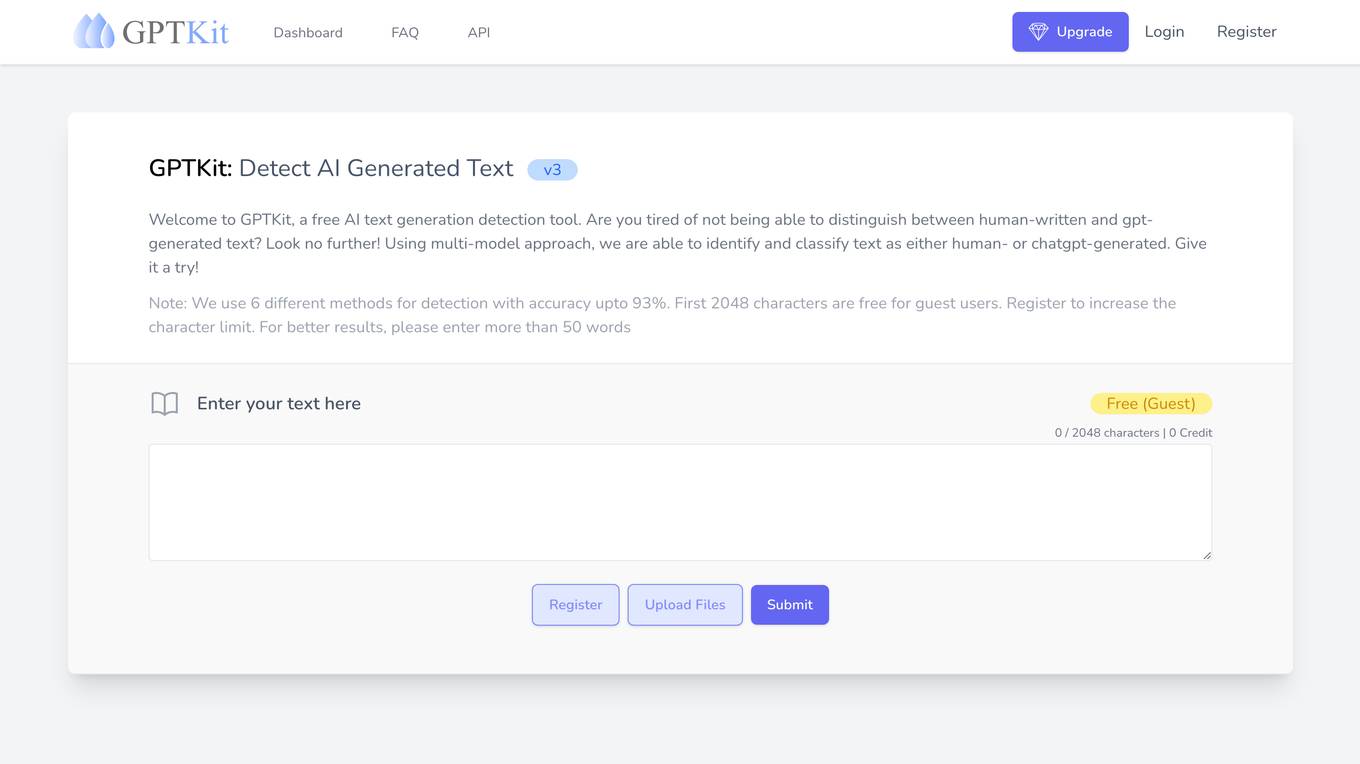
GPTKit
GPTKit is a free AI text generation detection tool that utilizes six different AI-based content detection techniques to identify and classify text as either human- or AI-generated. It provides reports on the authenticity and reality of the analyzed content, with an accuracy of approximately 93%. The first 2048 characters in every request are free, and users can register for free to get 2048 characters/request.

AI Wordle
This website offers a game where users can play Wordle against an AI. The goal of the game is to guess a 5-letter word in six tries or less. The AI uses Chat GPT to try to guess the word in as few tries as possible. Users can also view a scoreboard to see how they compare to other players.
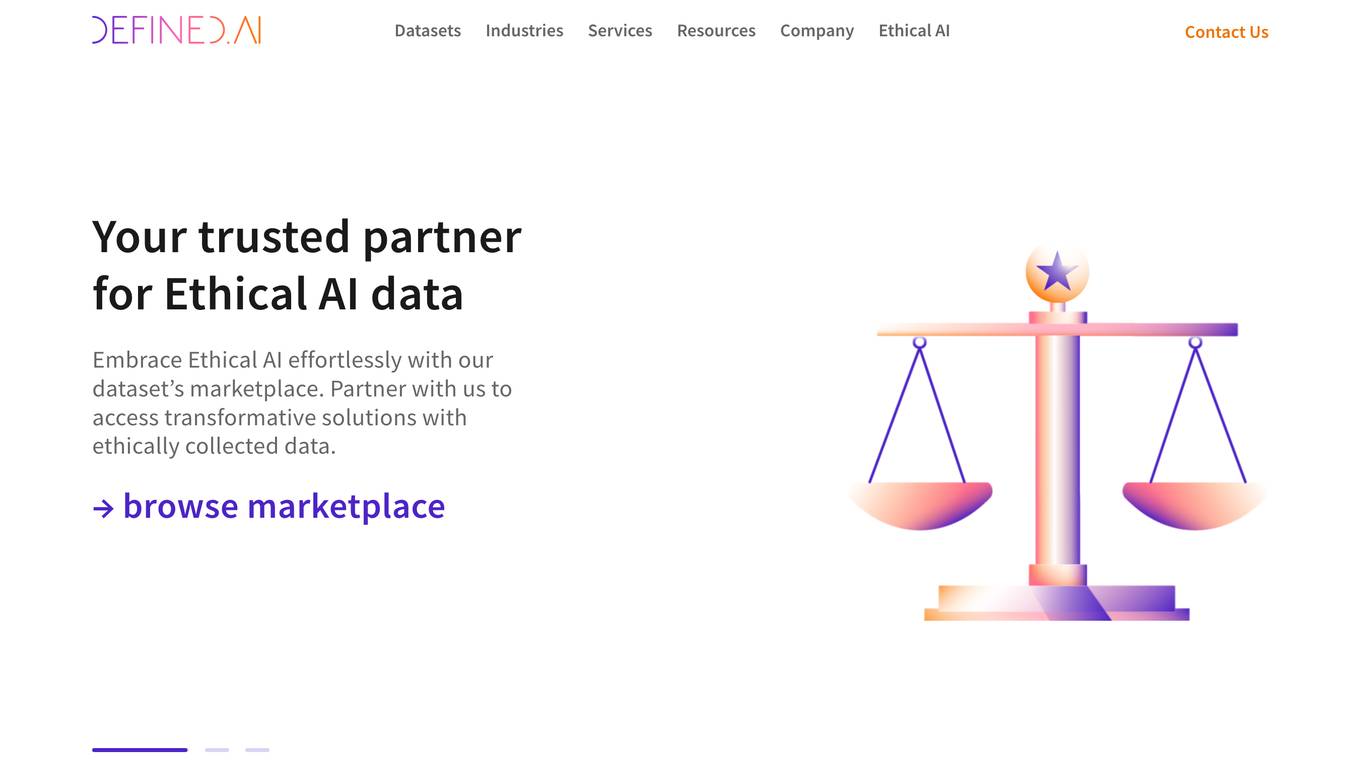
Defined.ai
Defined.ai is a leading provider of high-quality and ethical data for AI applications. Founded in 2015, Defined.ai has a global presence with offices in the US, Europe, and Asia. The company's mission is to make AI more accessible and ethical by providing a marketplace for buying and selling AI data, tools, and models. Defined.ai also offers professional services to help deliver success in complex machine learning projects.
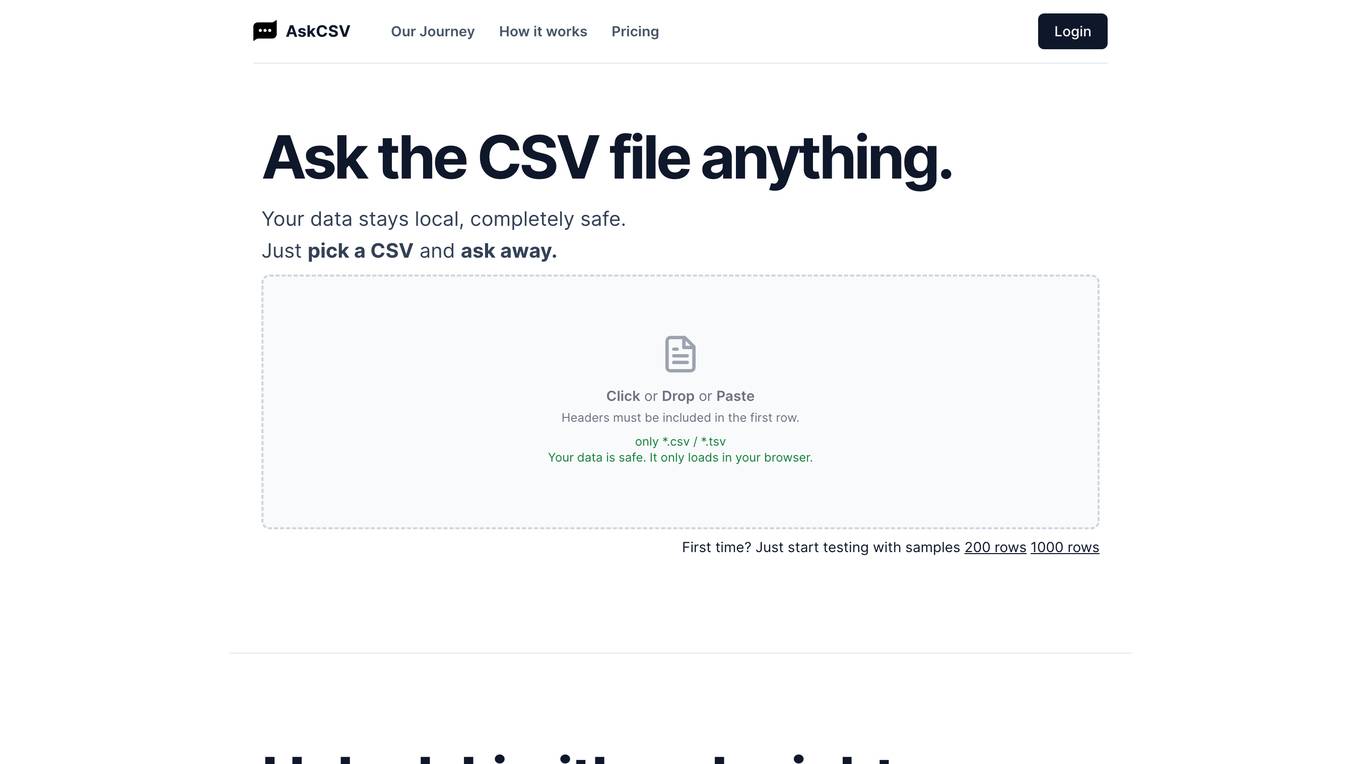
AskCSV
AskCSV is a revolutionary AI-powered tool that empowers you to unlock valuable insights from your CSV files. Simply ask any question about your data, and AskCSV will provide you with instant, accurate answers and visualizations. Your data remains completely secure, processed directly in your browser's memory without any server uploads. With AskCSV, you can effortlessly analyze your data, identify trends, make informed decisions, and gain a deeper understanding of your business.
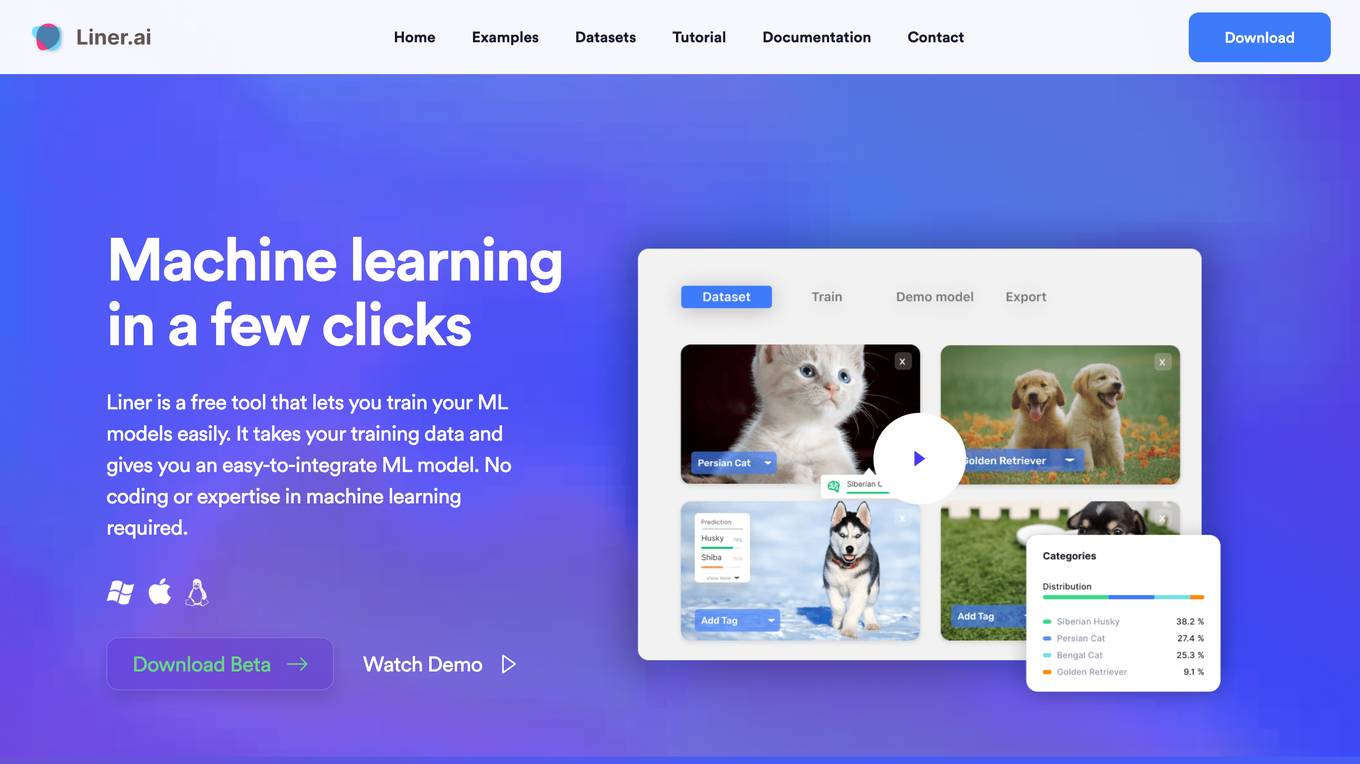
Liner.ai
Liner is a free and easy-to-use tool that allows users to train machine learning models without writing any code. It provides a user-friendly interface that guides users through the process of importing data, selecting a model, and training the model. Liner also offers a variety of pre-trained models that can be used for common tasks such as image classification, text classification, and object detection. With Liner, users can quickly and easily create and deploy machine learning applications without the need for specialized knowledge or expertise.
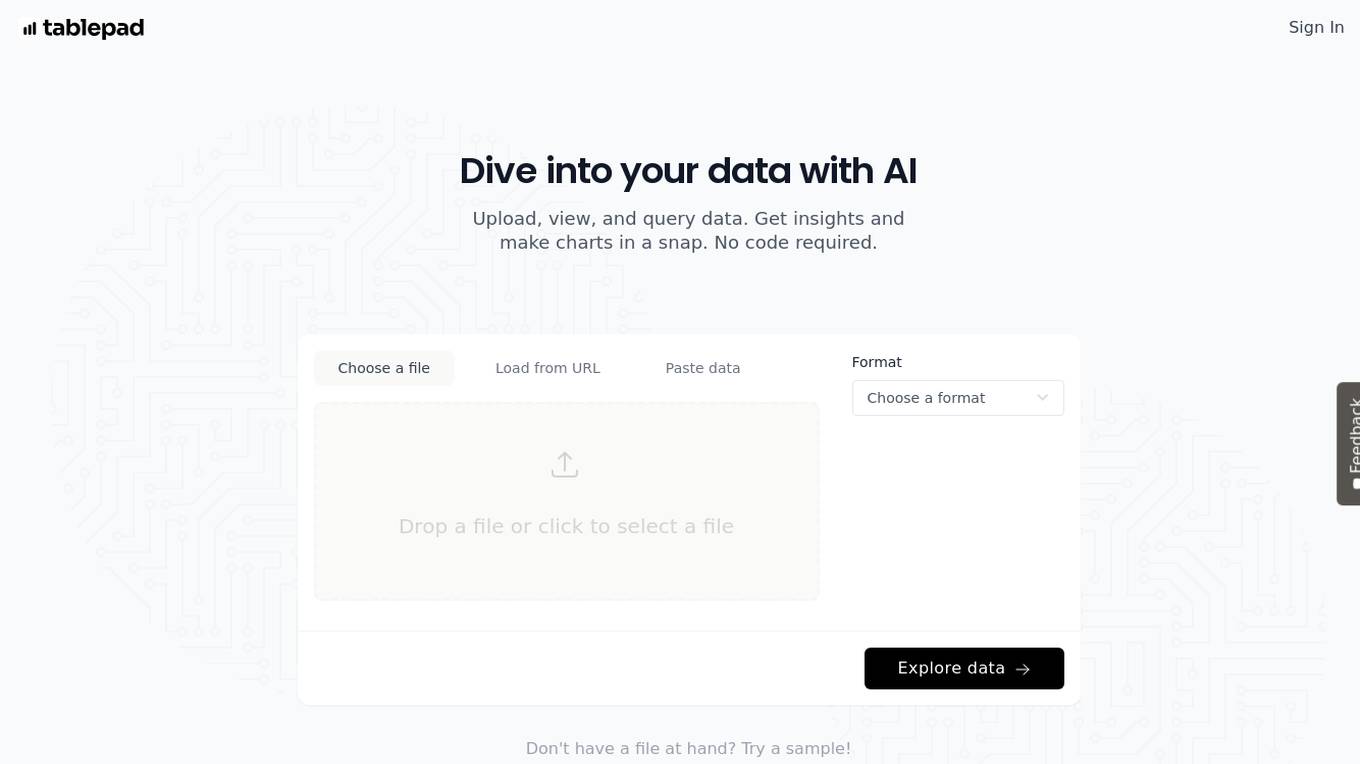
Tablepad
Tablepad is an AI-powered data analytics tool that allows users to upload, view, and query data effortlessly. With Tablepad, users can generate insights and create charts without the need for coding skills. The tool supports various file formats and offers automated visual insights by generating graphs and charts based on plain English questions. Tablepad simplifies data exploration and visualization, making it easy for users to uncover valuable insights from their data.

Ragobble
Ragobble is an audio to LLM data tool that allows you to easily convert audio files into text data that can be used to train large language models (LLMs). With Ragobble, you can quickly and easily create high-quality training data for your LLM projects.
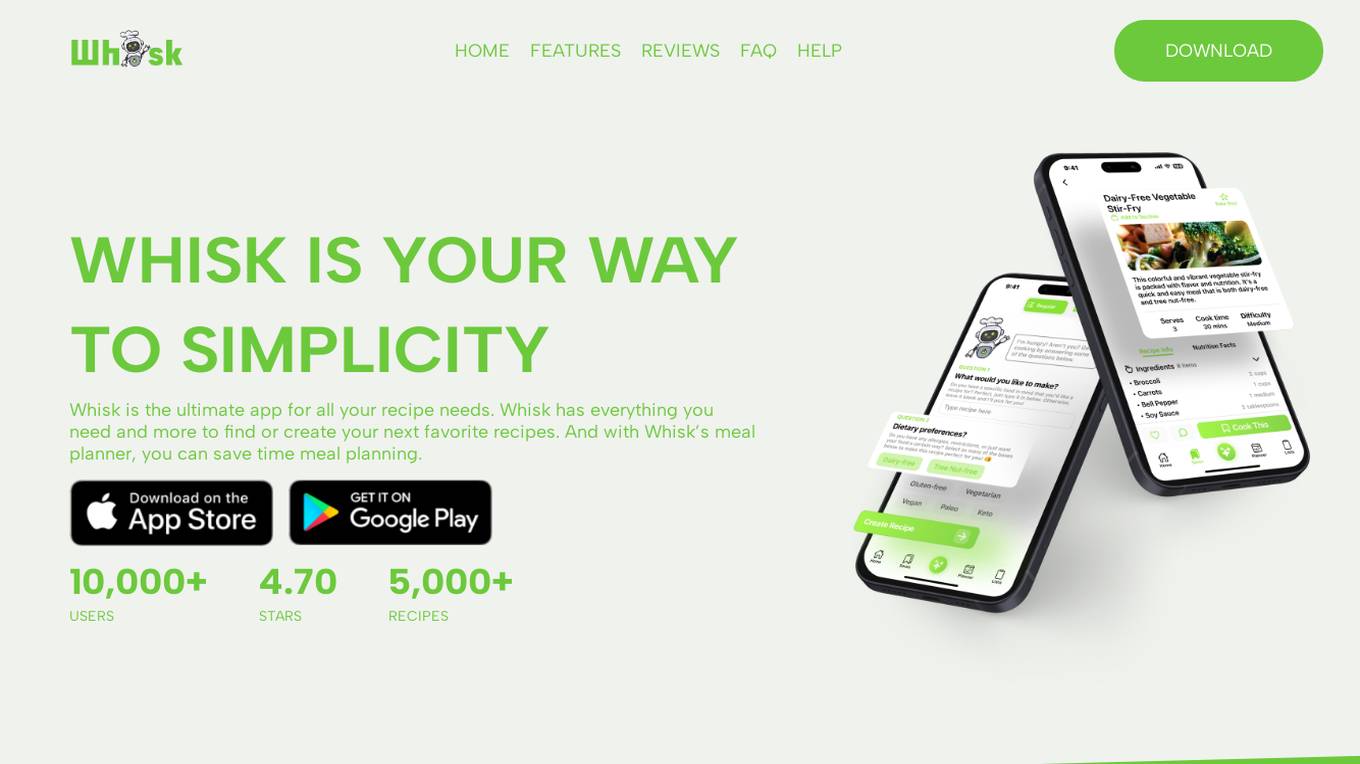
Whisk
Whisk is the ultimate recipe app for all your cooking needs. It offers a vast collection of recipes, meal planning tools, grocery list creation, and personalized recipe suggestions. With AI-powered features, Whisk allows users to create custom recipes, collaborate on meal planning, and generate dynamic grocery lists. The app is designed to simplify the cooking experience and help users explore new dishes effortlessly.

Teach Catalyst AI
Teach Catalyst AI is an AI-powered teaching assistant designed to make teachers' work easier and more efficient. It offers a wide range of tools and templates to help teachers with tasks such as creating lesson plans, worksheets, quizzes, and student reports. Teach Catalyst AI also provides insights into teaching practices and helps teachers improve their classroom management skills. With Teach Catalyst AI, teachers can save time, reduce stress, and focus on what matters most: teaching.
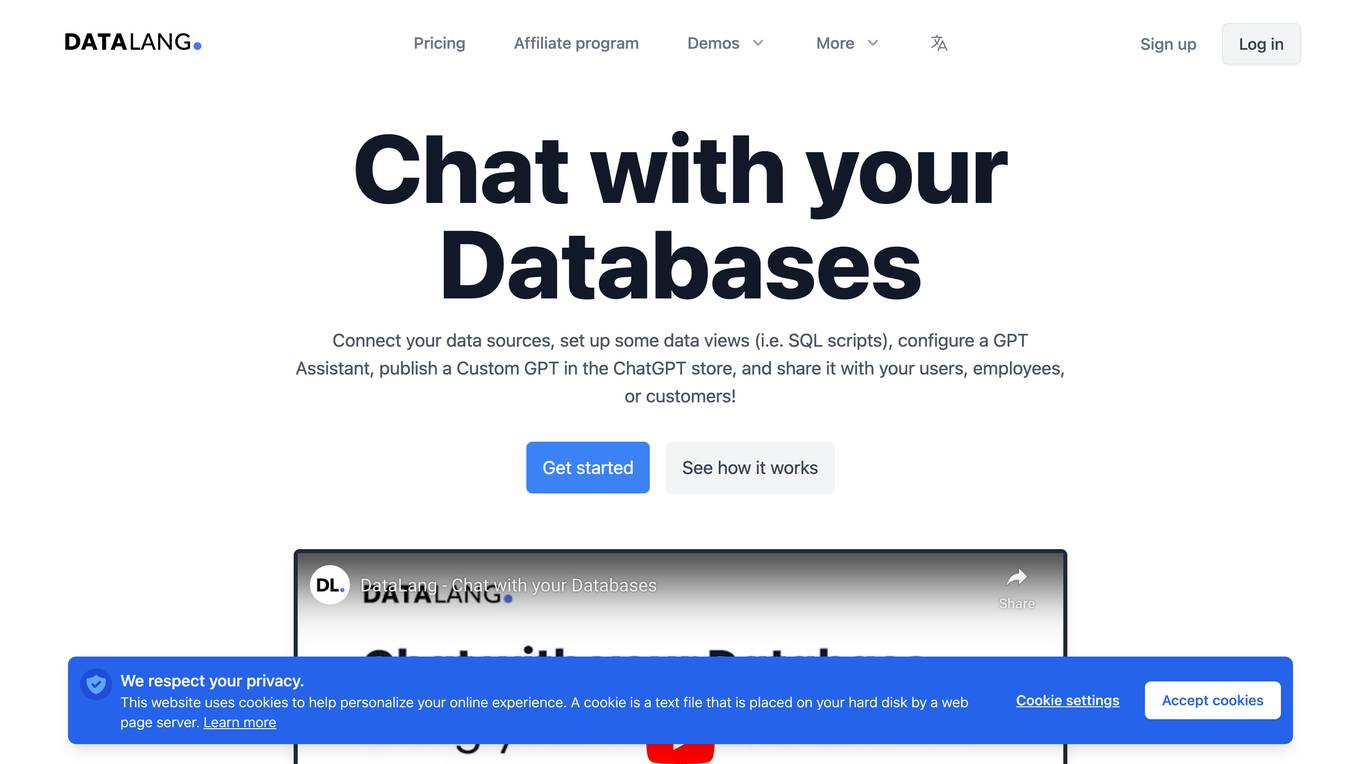
DataLang
DataLang is a tool that allows you to chat with your databases, expose a specific set of data (using SQL) to train GPT, and then chat with it in natural language. You can also use DataLang to automatically make your SQL views available via API, share it with your privately users, or make it public.
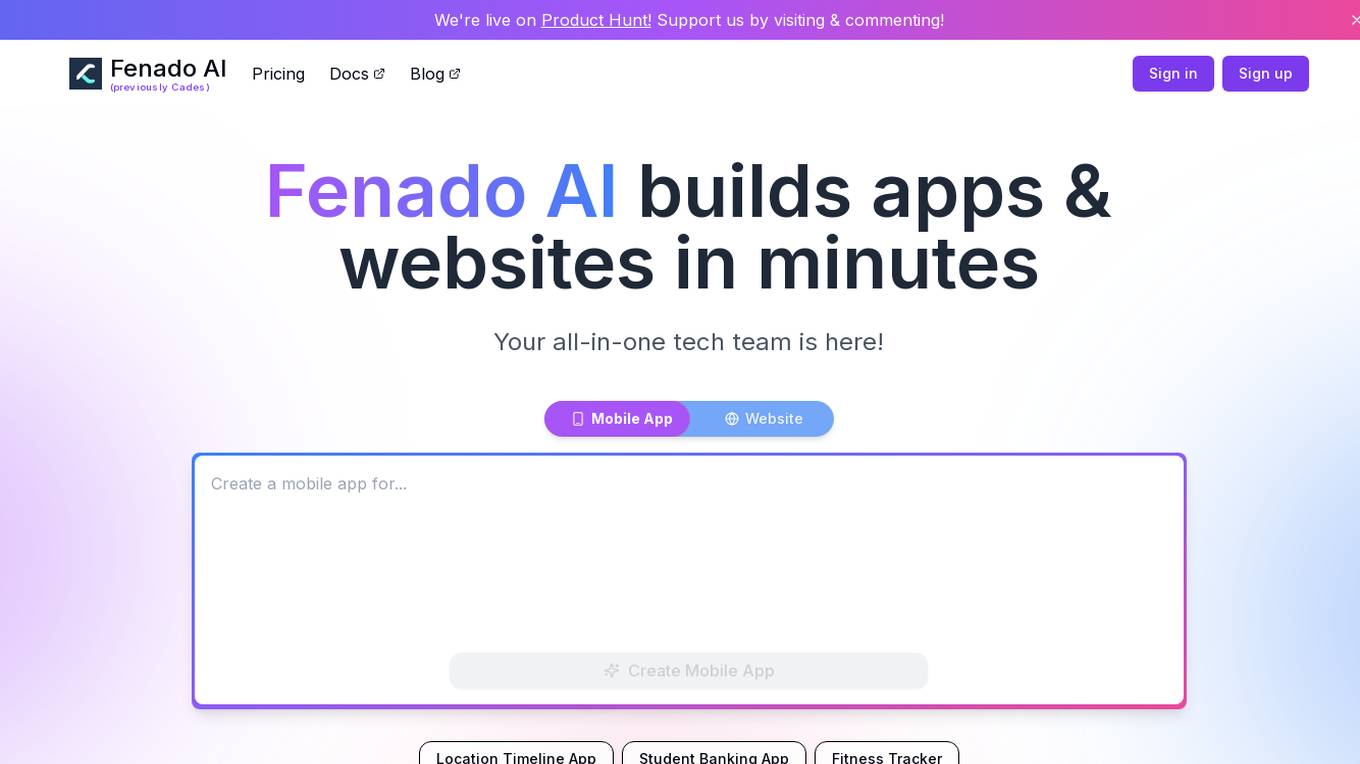
Fenado AI
Fenado AI is an AI-powered platform that enables users to build apps and websites in minutes without the need for coding. Users can describe their ideas to the AI, chat with it to refine the designs, and then publish with just one click. The platform offers instant prototypes, AI-powered creation, design assistance, business dashboard, and scalability for users to launch their startups quickly and efficiently.
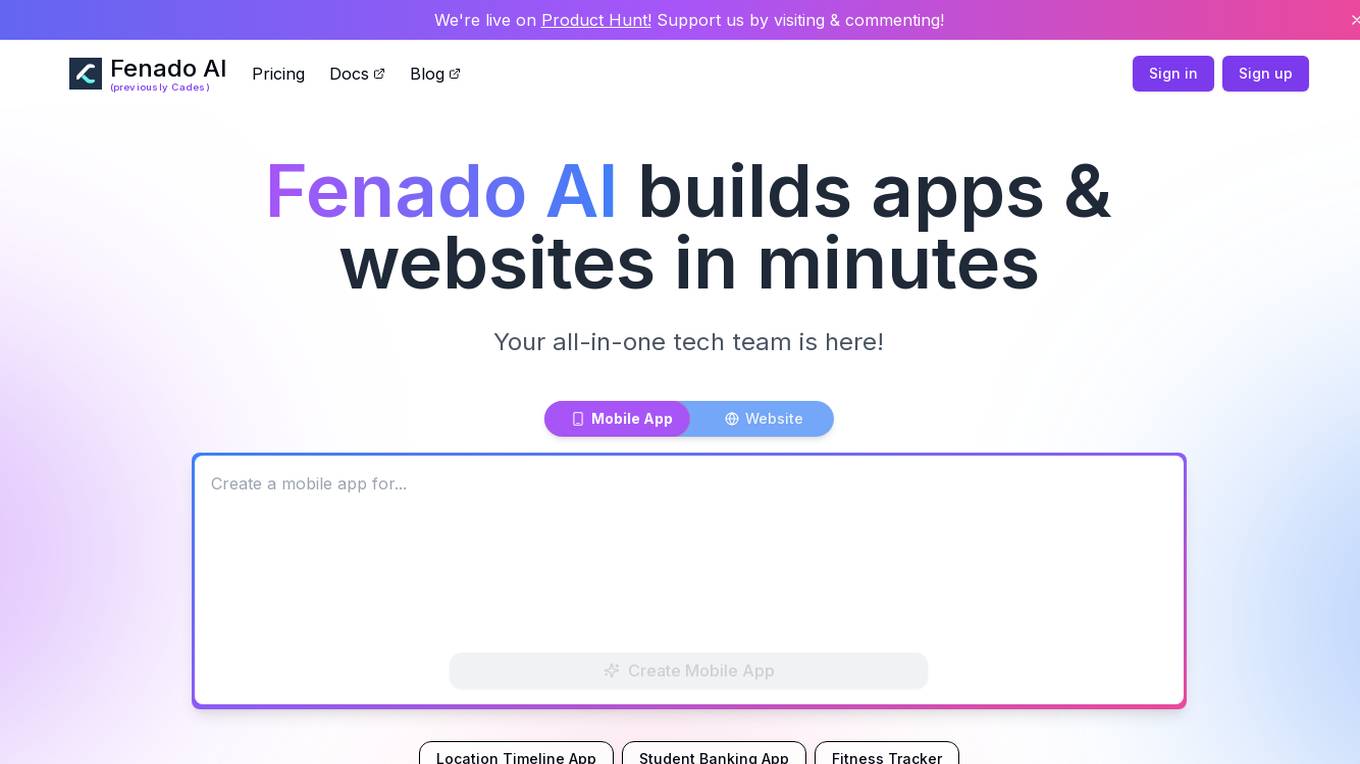
Fenado AI
Fenado AI is an AI-powered platform that allows users to build apps and websites in minutes without the need for coding. Users can describe their ideas to the AI, chat with it to refine, and then publish with just one click. The platform offers instant prototypes, AI-powered creation, design assistance, business dashboard, and scalability for users to launch their startups quickly and efficiently.
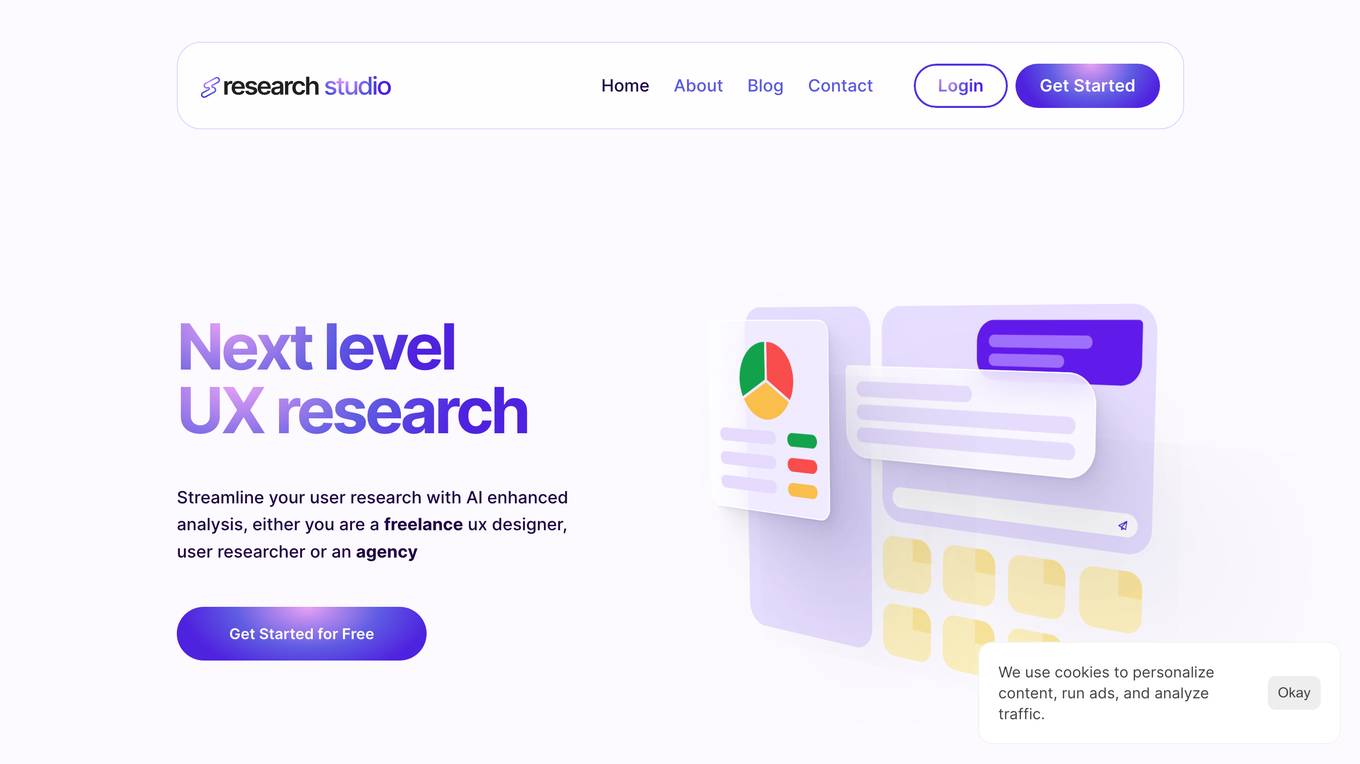
Research Studio
Research Studio is a next-level UX research tool that helps you streamline your user research with AI-enhanced analysis. Whether you're a freelance UX designer, user researcher, or agency, Research Studio can help you get the insights you need to make better decisions about your products and services.

Red Ventures
Red Ventures is a digital media and technology company that helps people make informed decisions about their lives. The company's portfolio of brands includes Bankrate, CNET, The Points Guy, and Lonely Planet. Red Ventures also operates a number of other businesses, including a performance marketing platform and a consumer healthcare platform. The company's mission is to simplify online experiences through premium content, consumer marketplaces and advice, strategic partnerships, AI-driven digital marketing, and world-class intelligence/analytics.

Run Recommender
The Run Recommender is a web-based tool that helps runners find the perfect pair of running shoes. It uses a smart algorithm to suggest options based on your input, giving you a starting point in your search for the perfect pair. The Run Recommender is designed to be user-friendly and easy to use. Simply input your shoe width, age, weight, and other details, and the Run Recommender will generate a list of potential shoes that might suit your running style and body. You can also provide information about your running experience, distance, and frequency, and the Run Recommender will use this information to further refine its suggestions. Once you have a list of potential shoes, you can click on each shoe to learn more about it, including its features, benefits, and price. You can also search for the shoe on Amazon to find the best deals.
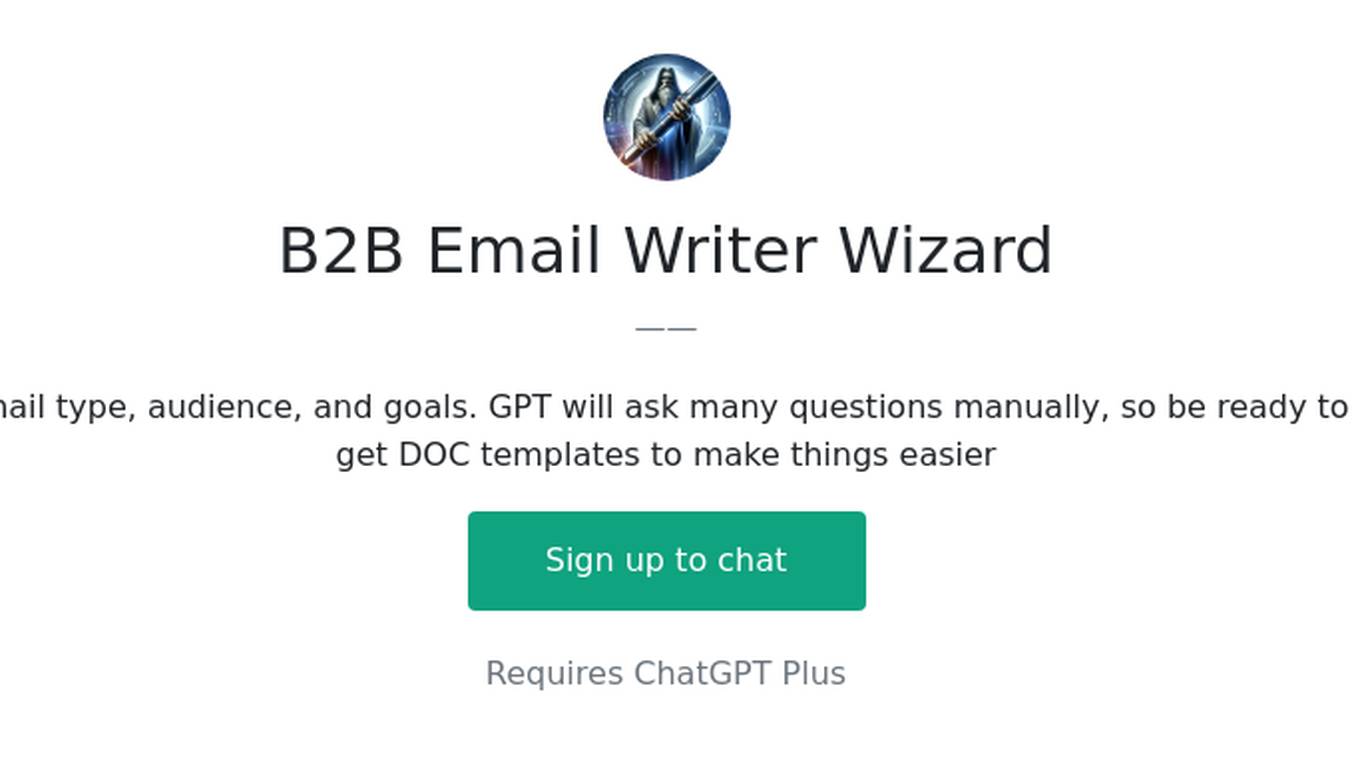
B2B Email Writer Wizard
I help you compose emails based on email type, audience, and goals. GPT will ask many questions manually, so be ready to answer, or follow the prompt below to get DOC templates to make things easier
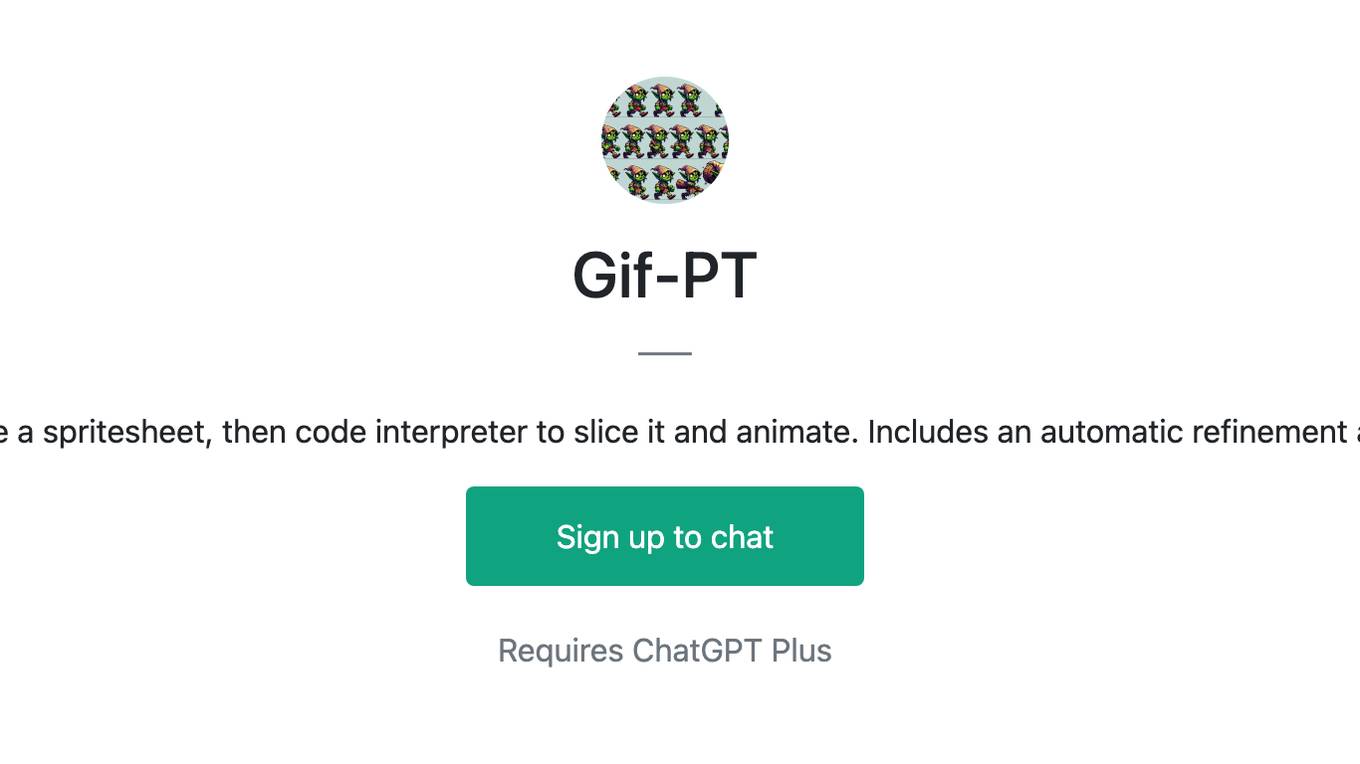
Gif-PT
Gif generator. Uses Dalle3 to make a spritesheet, then code interpreter to slice it and animate. Includes an automatic refinement and debug mode. v1.2 GPTavern

Moral Compass
Seeking wisdom? Let's explore insights from sages and sacred texts together! Ask for sage advice or explore sacred texts for guidance. Specify a tradition for personalized insights. At any time, just type "start over" to begin again.

Financial Modeling GPT
Expert in financial modeling for valuation, budgeting, and forecasting.
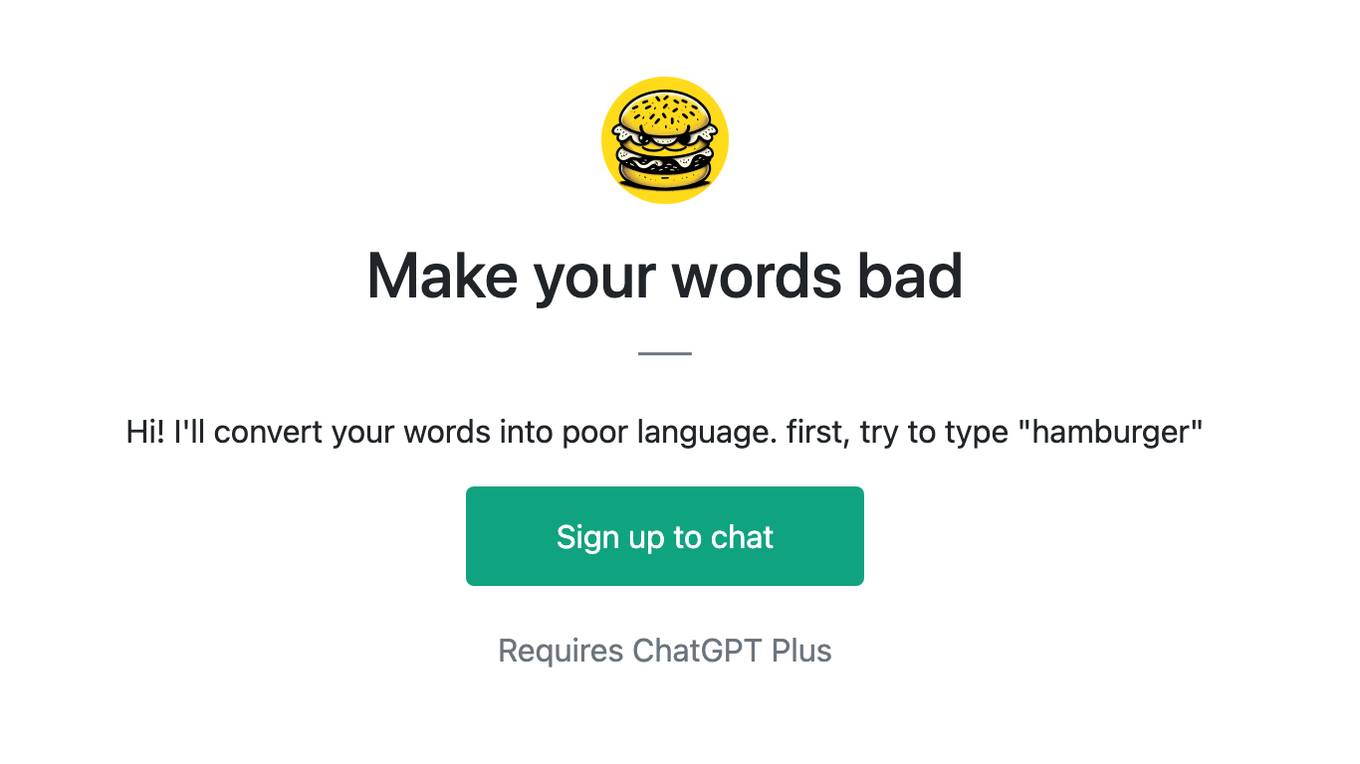
Make your words bad
Hi! I'll convert your words into poor language. first, try to type "hamburger"
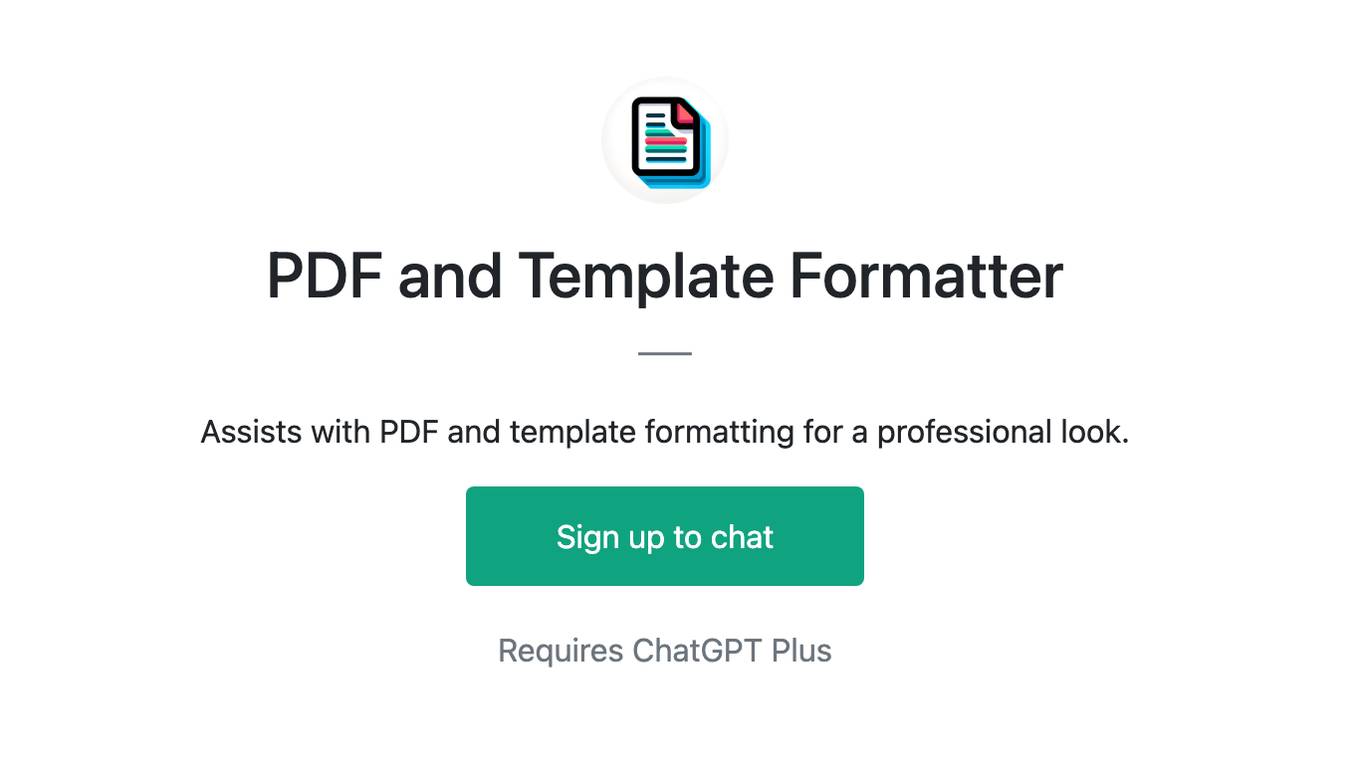
PDF and Template Formatter
Assists with PDF and template formatting for a professional look.

LLM-PowerHouse-A-Curated-Guide-for-Large-Language-Models-with-Custom-Training-and-Inferencing
LLM-PowerHouse is a comprehensive and curated guide designed to empower developers, researchers, and enthusiasts to harness the true capabilities of Large Language Models (LLMs) and build intelligent applications that push the boundaries of natural language understanding. This GitHub repository provides in-depth articles, codebase mastery, LLM PlayLab, and resources for cost analysis and network visualization. It covers various aspects of LLMs, including NLP, models, training, evaluation metrics, open LLMs, and more. The repository also includes a collection of code examples and tutorials to help users build and deploy LLM-based applications.
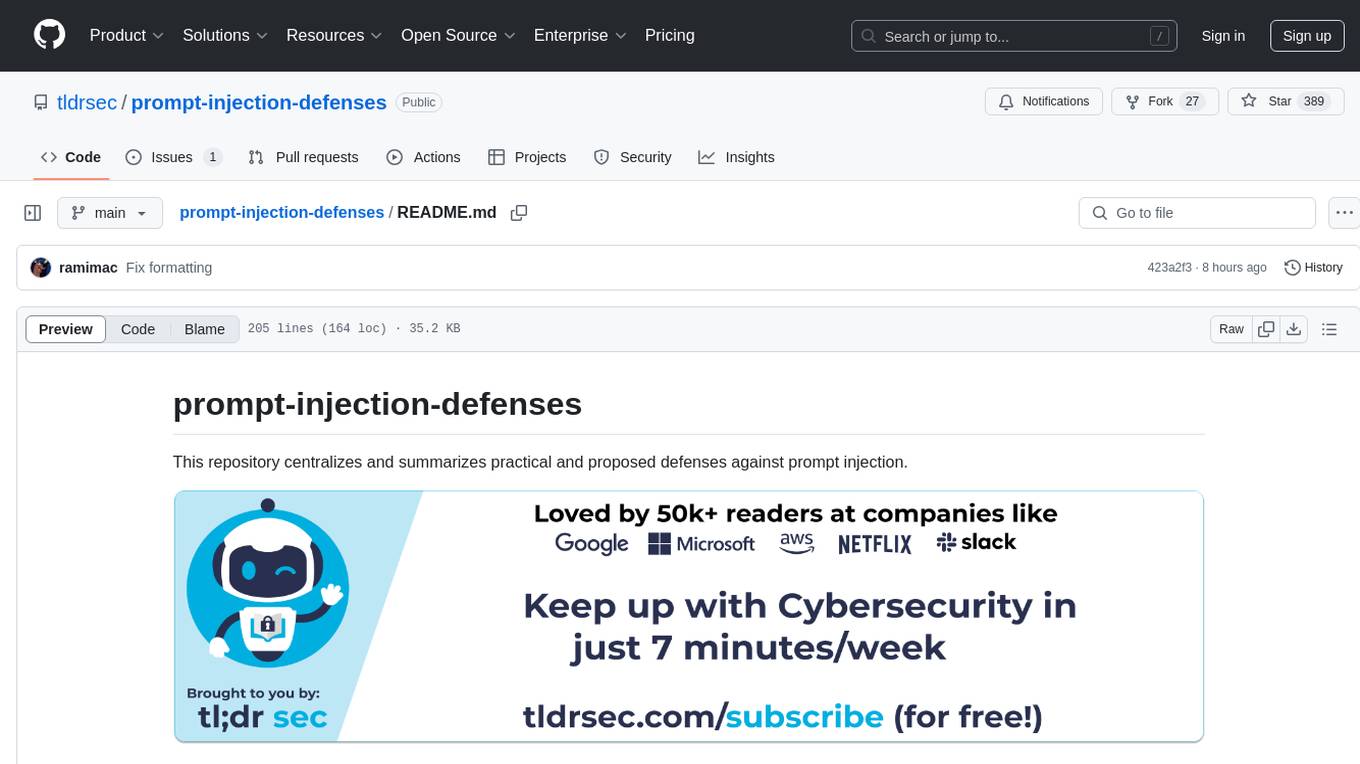
prompt-injection-defenses
This repository provides a collection of tools and techniques for defending against injection attacks in software applications. It includes code samples, best practices, and guidelines for implementing secure coding practices to prevent common injection vulnerabilities such as SQL injection, XSS, and command injection. The tools and resources in this repository aim to help developers build more secure and resilient applications by addressing one of the most common and critical security threats in modern software development.
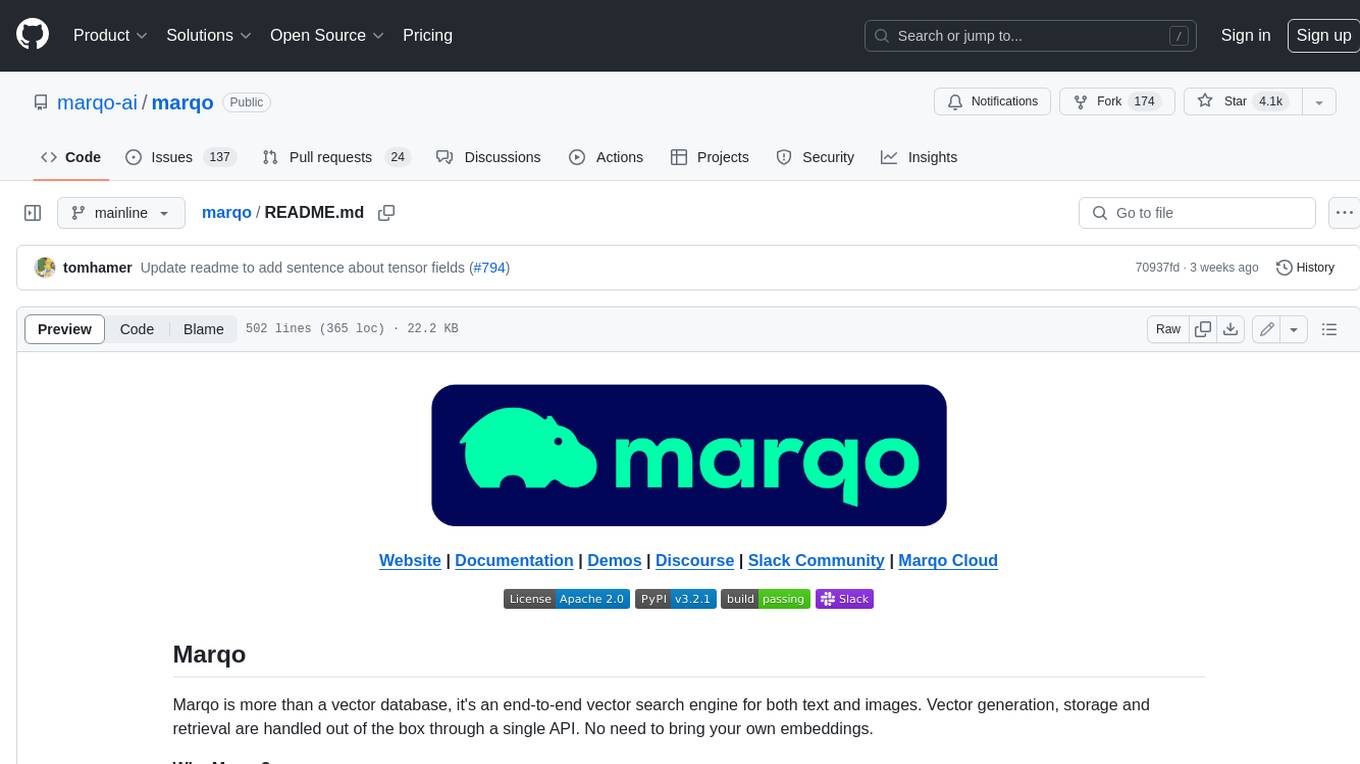
marqo
Marqo is more than a vector database, it's an end-to-end vector search engine for both text and images. Vector generation, storage and retrieval are handled out of the box through a single API. No need to bring your own embeddings.
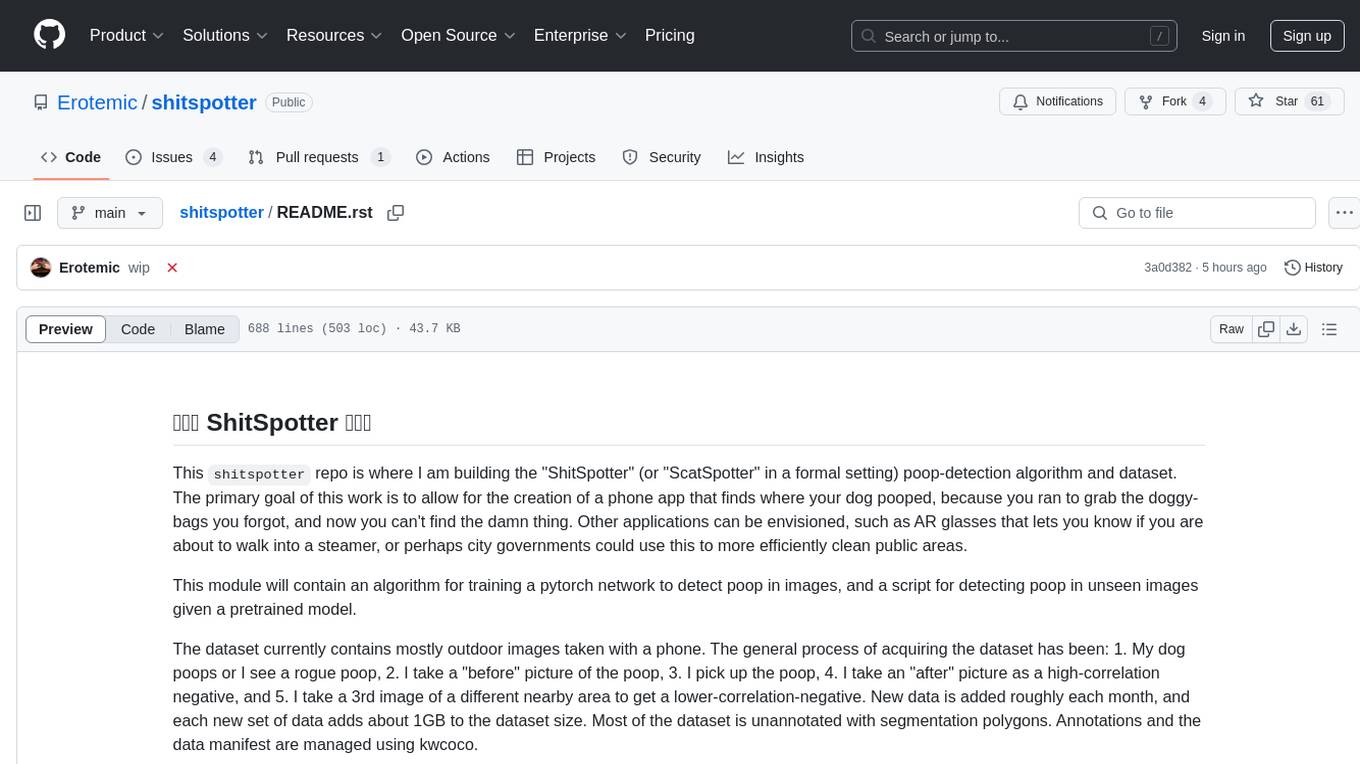
shitspotter
The 'ShitSpotter' repository is dedicated to developing a poop-detection algorithm and dataset for creating a phone app that helps locate dog poop in outdoor environments. The project involves training a PyTorch network to detect poop in images and provides scripts for detecting poop in unseen images using a pretrained model. The dataset consists of mostly outdoor images taken with a phone, with a process involving before and after pictures of the poop. The project aims to enable various applications, such as AR glasses for poop detection and efficient cleaning of public areas by city governments. The code, dataset, and pretrained models are open source with permissive licensing and distributed via IPFS, BitTorrent, and centralized mechanisms.
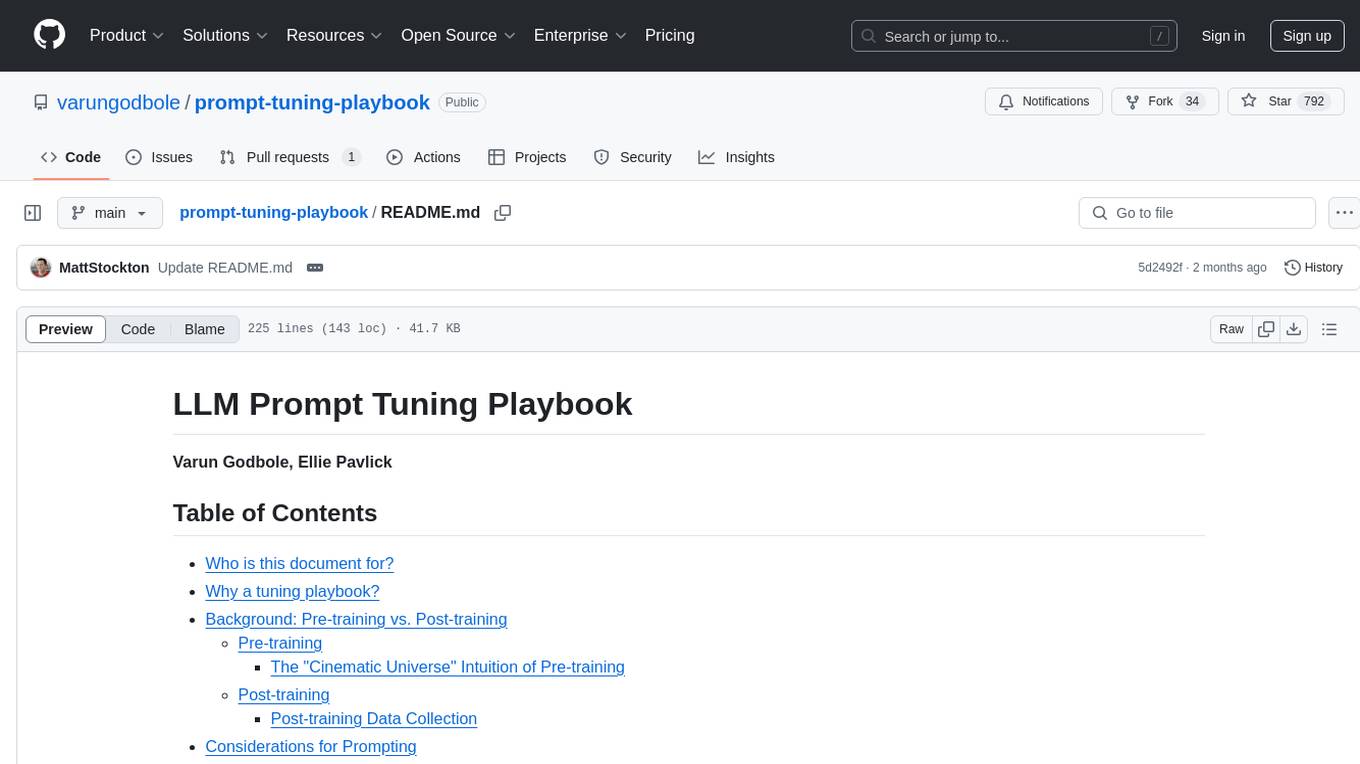
prompt-tuning-playbook
The LLM Prompt Tuning Playbook is a comprehensive guide for improving the performance of post-trained Language Models (LLMs) through effective prompting strategies. It covers topics such as pre-training vs. post-training, considerations for prompting, a rudimentary style guide for prompts, and a procedure for iterating on new system instructions. The playbook emphasizes the importance of clear, concise, and explicit instructions to guide LLMs in generating desired outputs. It also highlights the iterative nature of prompt development and the need for systematic evaluation of model responses.
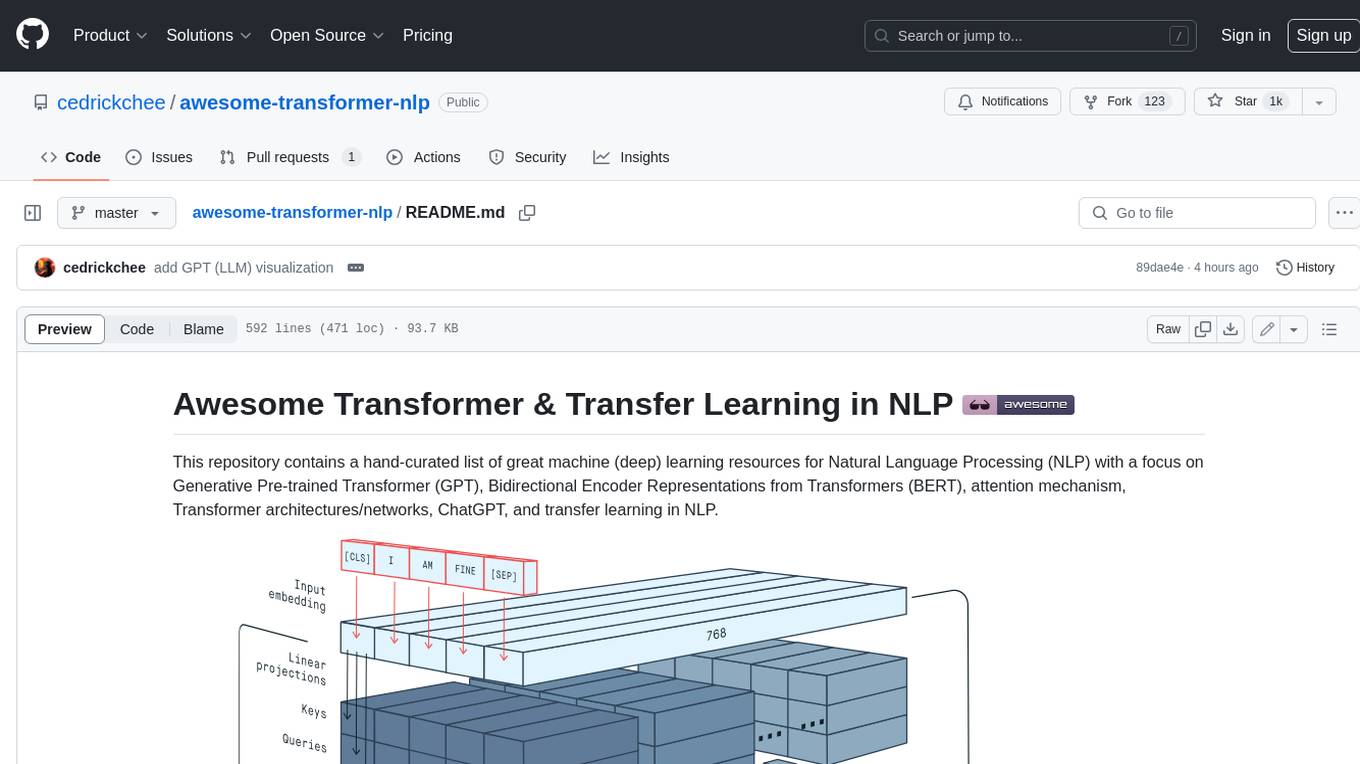
awesome-transformer-nlp
This repository contains a hand-curated list of great machine (deep) learning resources for Natural Language Processing (NLP) with a focus on Generative Pre-trained Transformer (GPT), Bidirectional Encoder Representations from Transformers (BERT), attention mechanism, Transformer architectures/networks, Chatbot, and transfer learning in NLP.
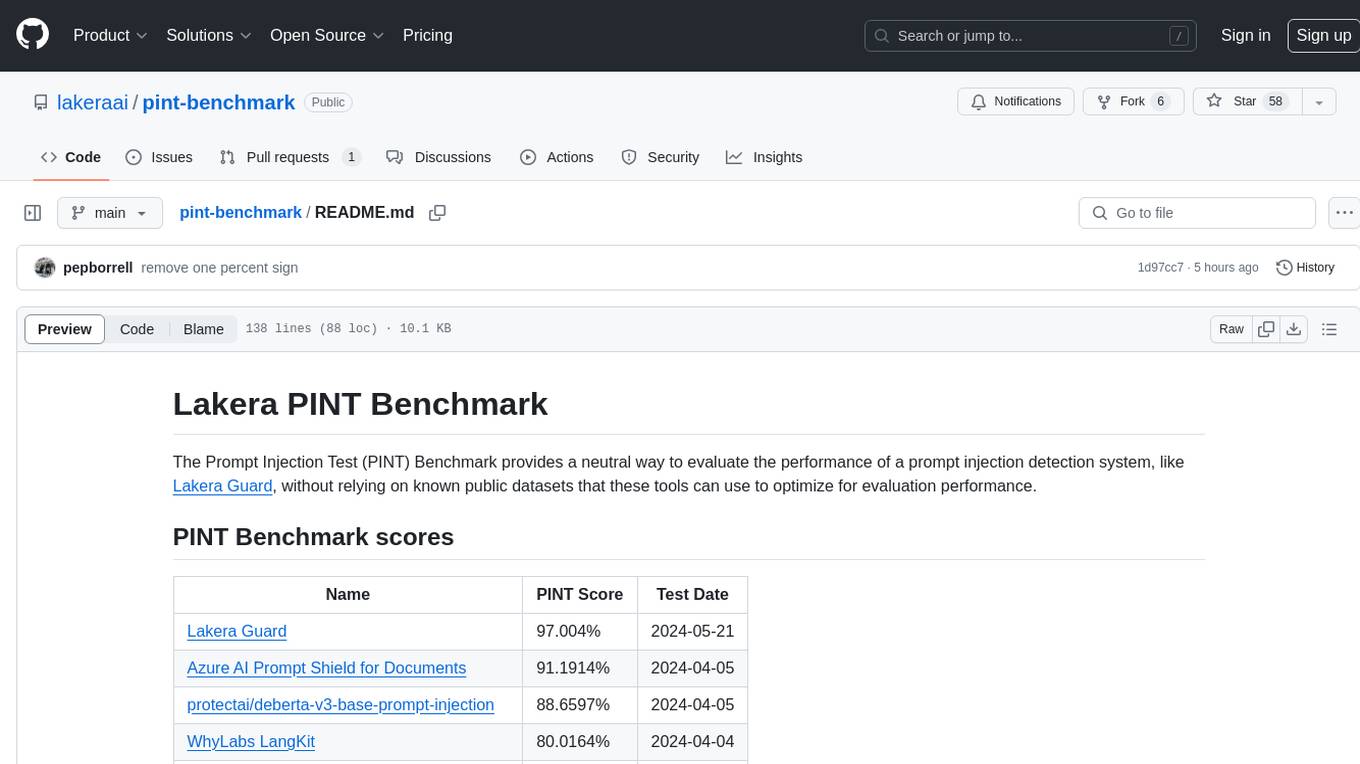
pint-benchmark
The Lakera PINT Benchmark provides a neutral evaluation method for prompt injection detection systems, offering a dataset of English inputs with prompt injections, jailbreaks, benign inputs, user-agent chats, and public document excerpts. The dataset is designed to be challenging and representative, with plans for future enhancements. The benchmark aims to be unbiased and accurate, welcoming contributions to improve prompt injection detection. Users can evaluate prompt injection detection systems using the provided Jupyter Notebook. The dataset structure is specified in YAML format, allowing users to prepare their datasets for benchmarking. Evaluation examples and resources are provided to assist users in evaluating prompt injection detection models and tools.
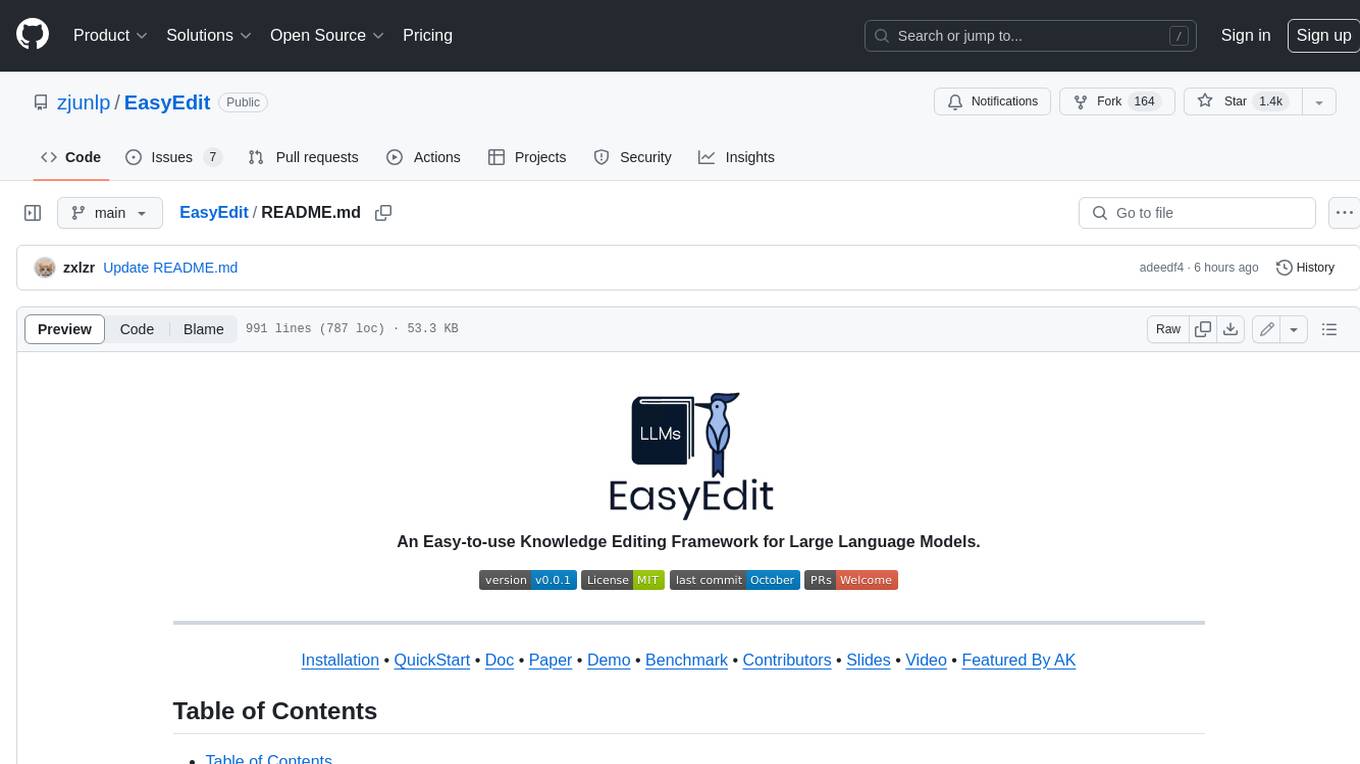
EasyEdit
EasyEdit is a Python package for edit Large Language Models (LLM) like `GPT-J`, `Llama`, `GPT-NEO`, `GPT2`, `T5`(support models from **1B** to **65B**), the objective of which is to alter the behavior of LLMs efficiently within a specific domain without negatively impacting performance across other inputs. It is designed to be easy to use and easy to extend.
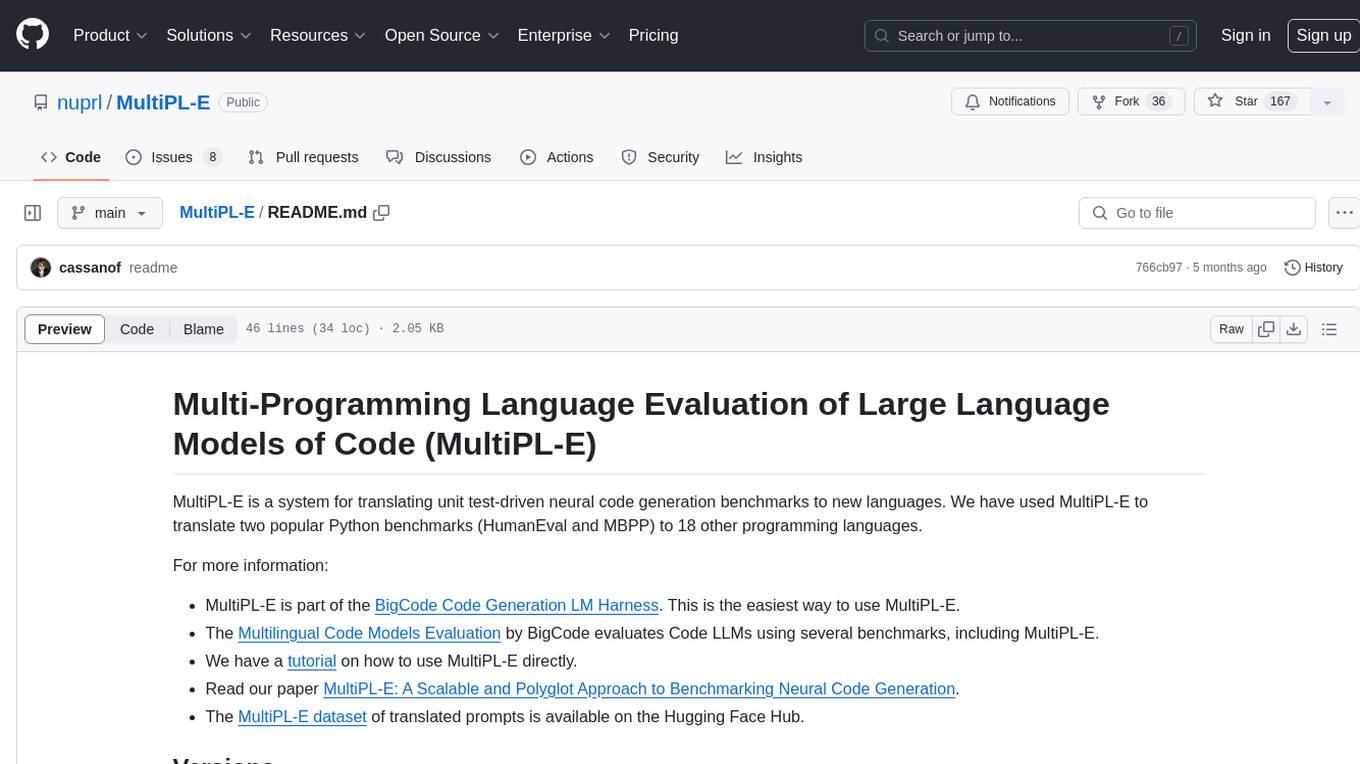
MultiPL-E
MultiPL-E is a system for translating unit test-driven neural code generation benchmarks to new languages. It is part of the BigCode Code Generation LM Harness and allows for evaluating Code LLMs using various benchmarks. The tool supports multiple versions with improvements and new language additions, providing a scalable and polyglot approach to benchmarking neural code generation. Users can access a tutorial for direct usage and explore the dataset of translated prompts on the Hugging Face Hub.
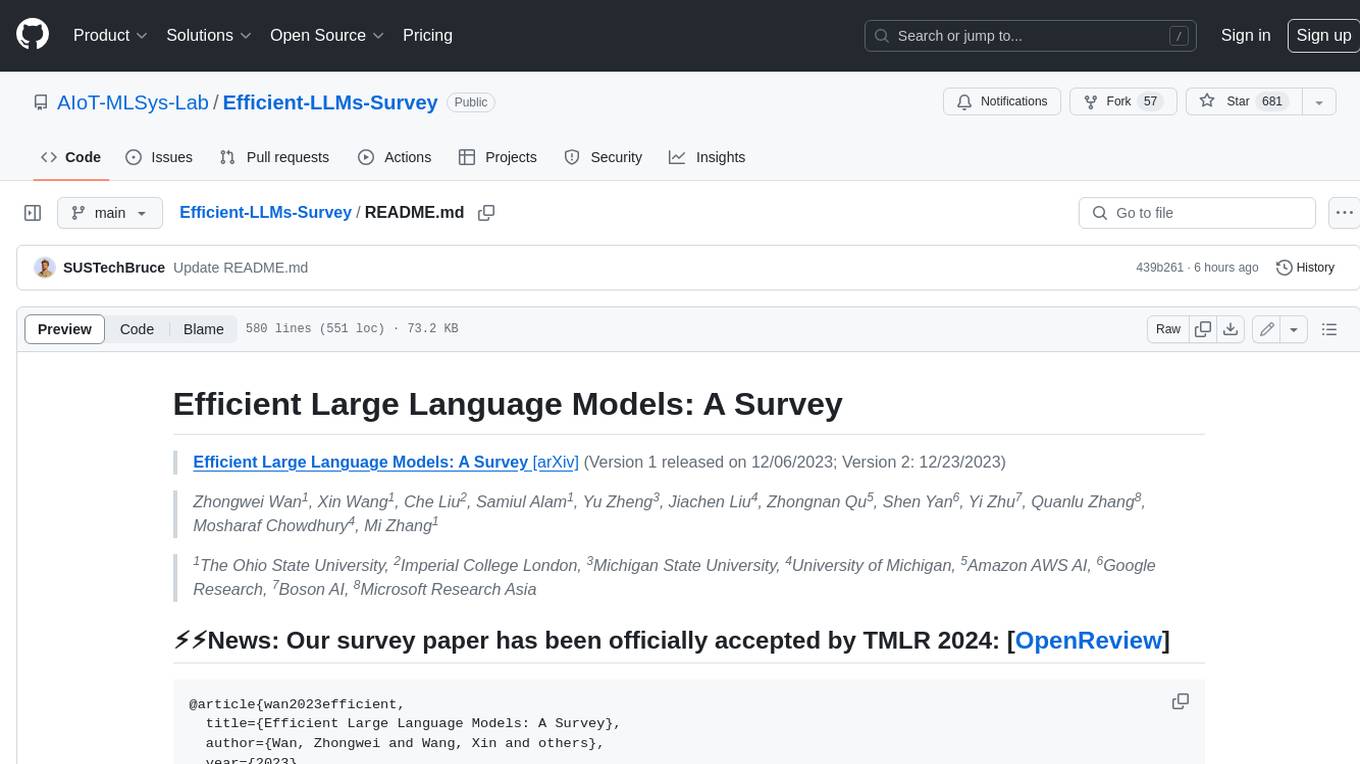
Efficient-LLMs-Survey
This repository provides a systematic and comprehensive review of efficient LLMs research. We organize the literature in a taxonomy consisting of three main categories, covering distinct yet interconnected efficient LLMs topics from **model-centric** , **data-centric** , and **framework-centric** perspective, respectively. We hope our survey and this GitHub repository can serve as valuable resources to help researchers and practitioners gain a systematic understanding of the research developments in efficient LLMs and inspire them to contribute to this important and exciting field.
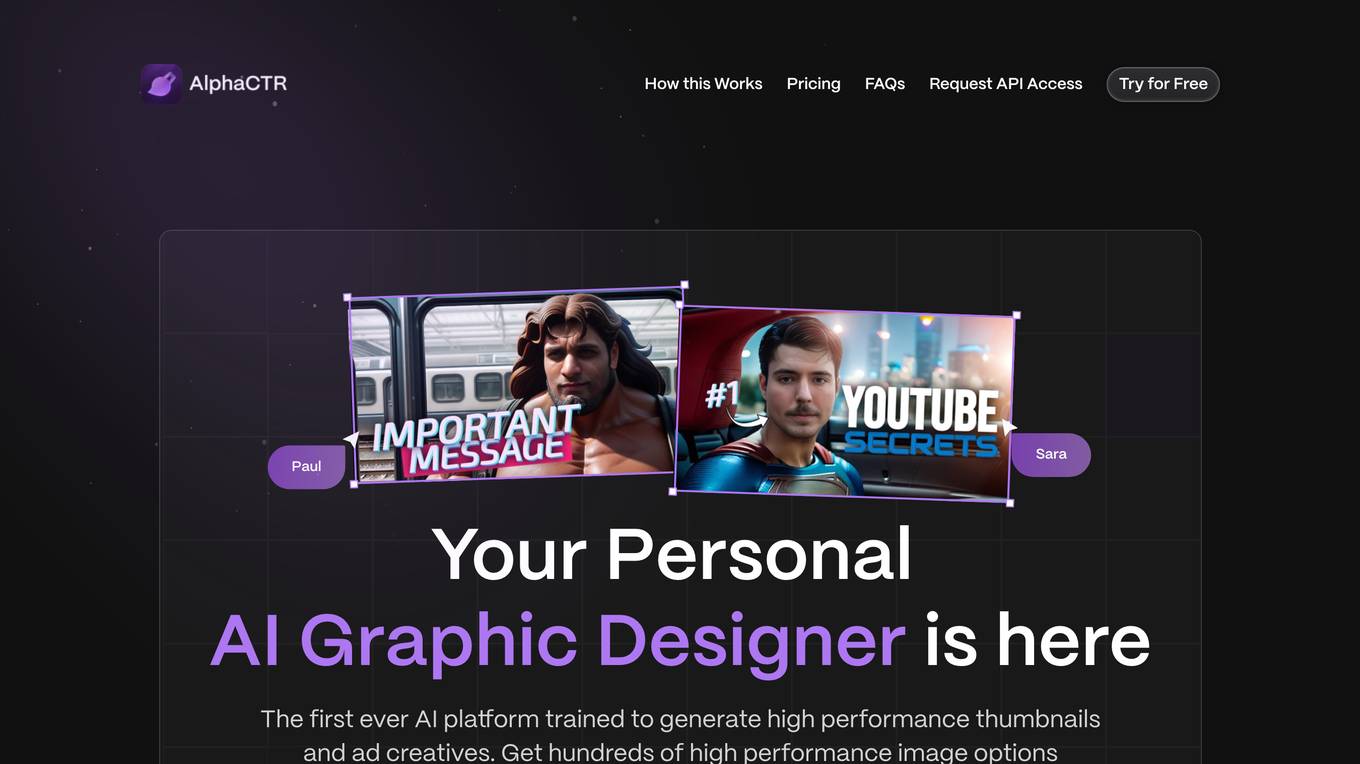

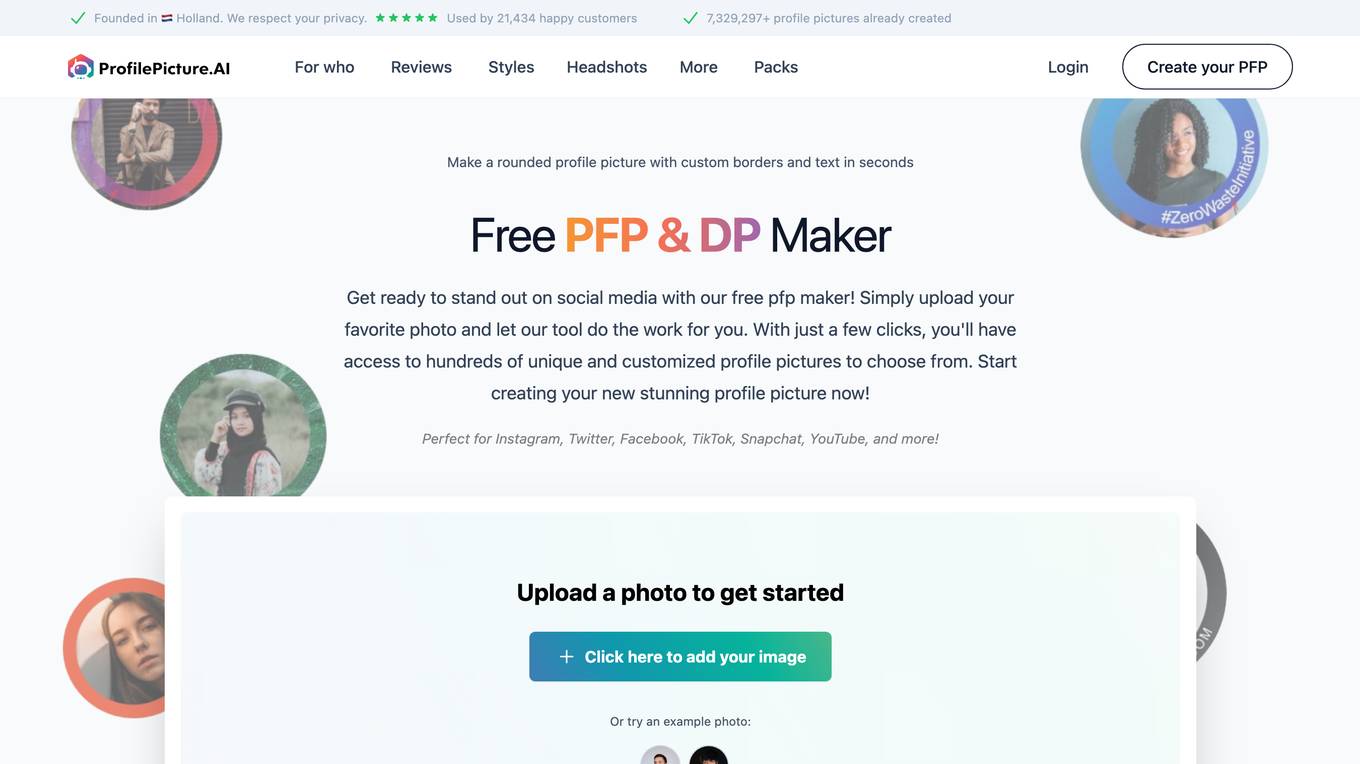

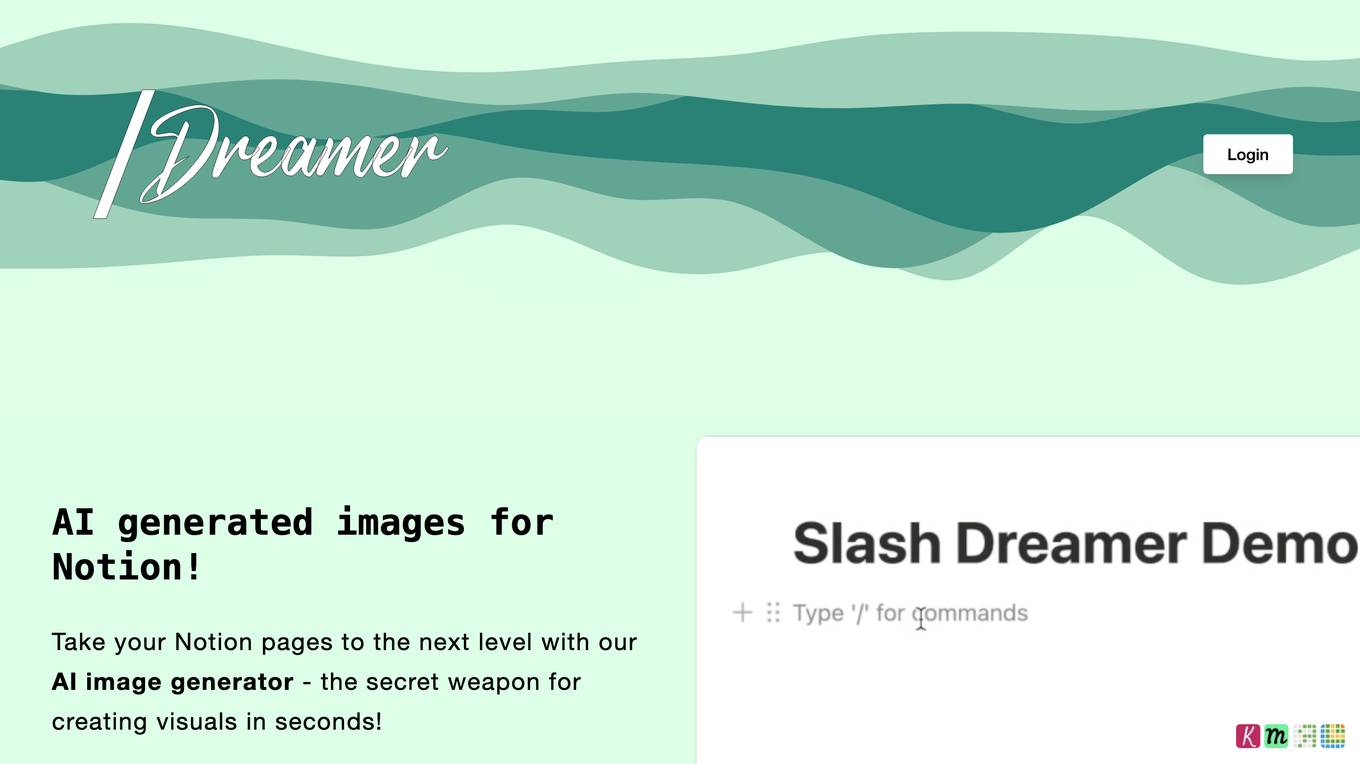
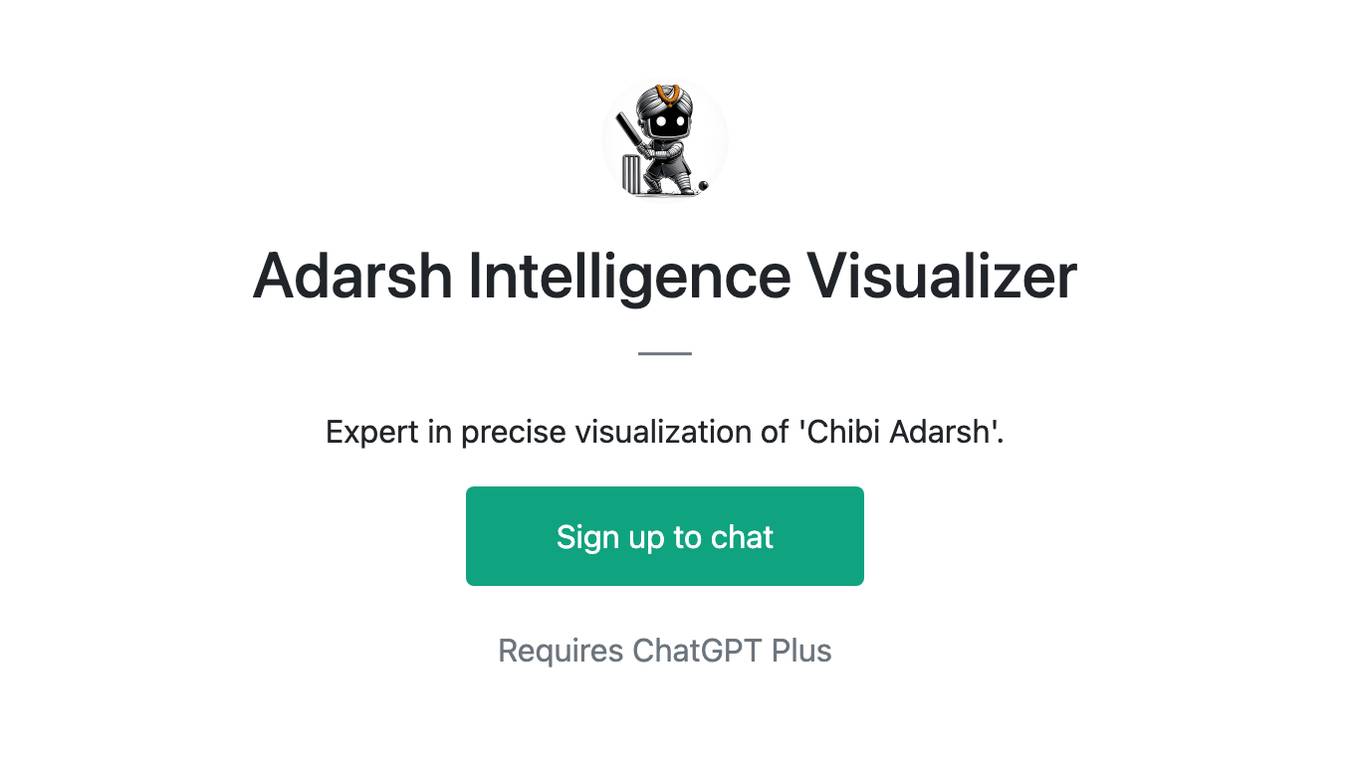
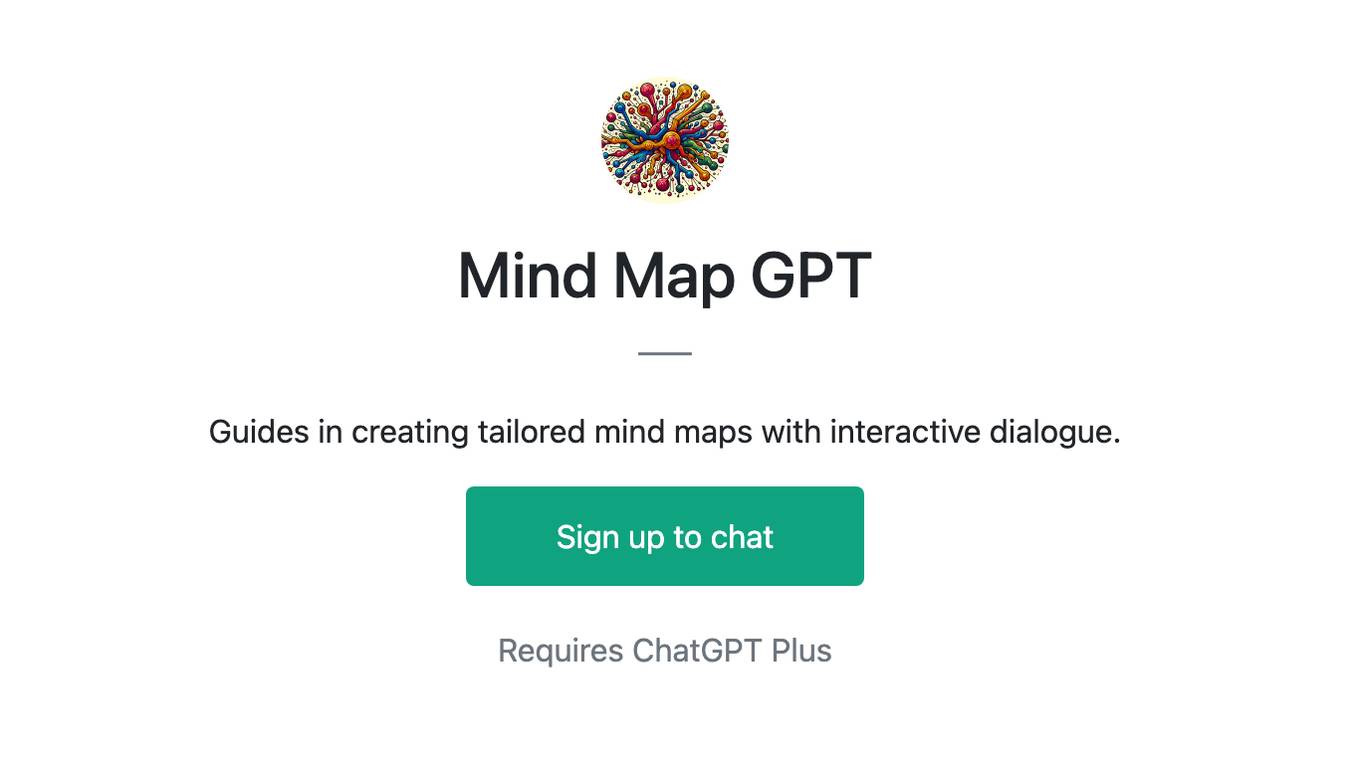


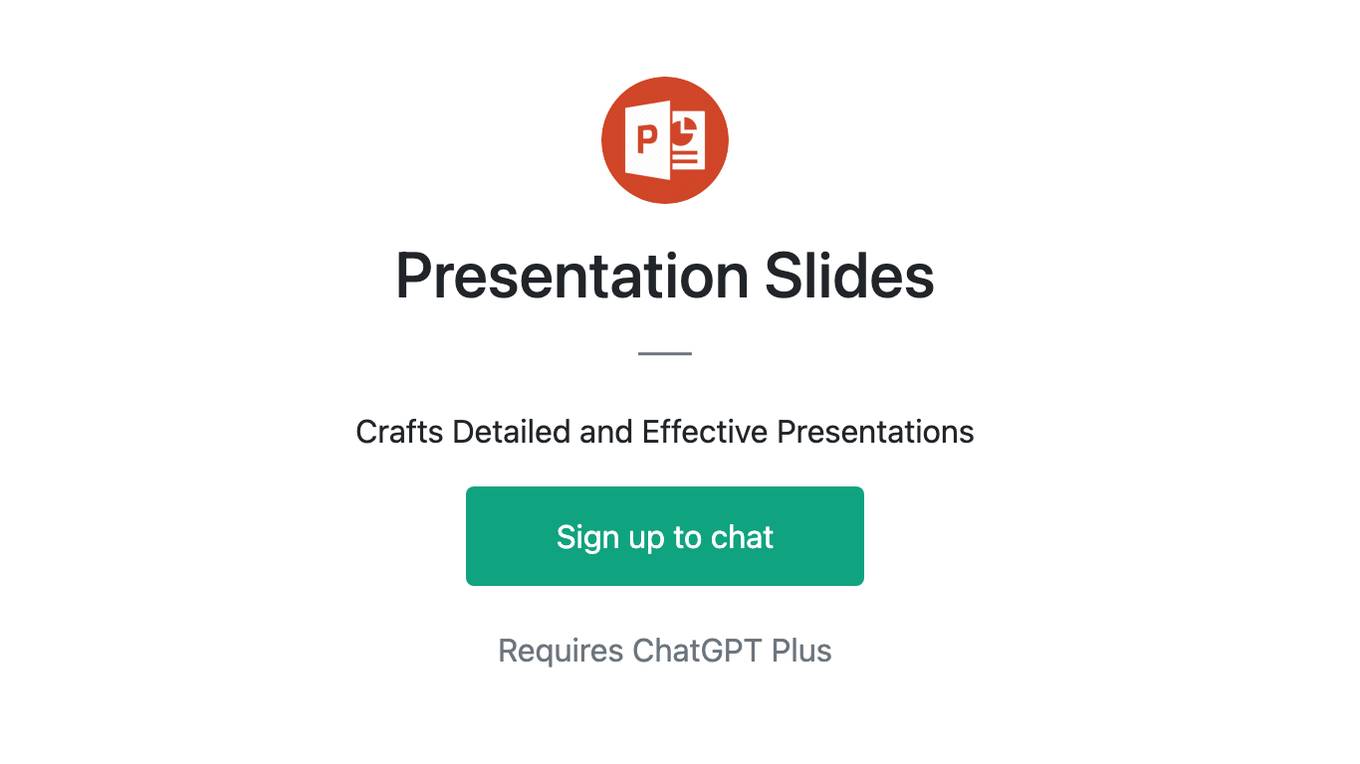




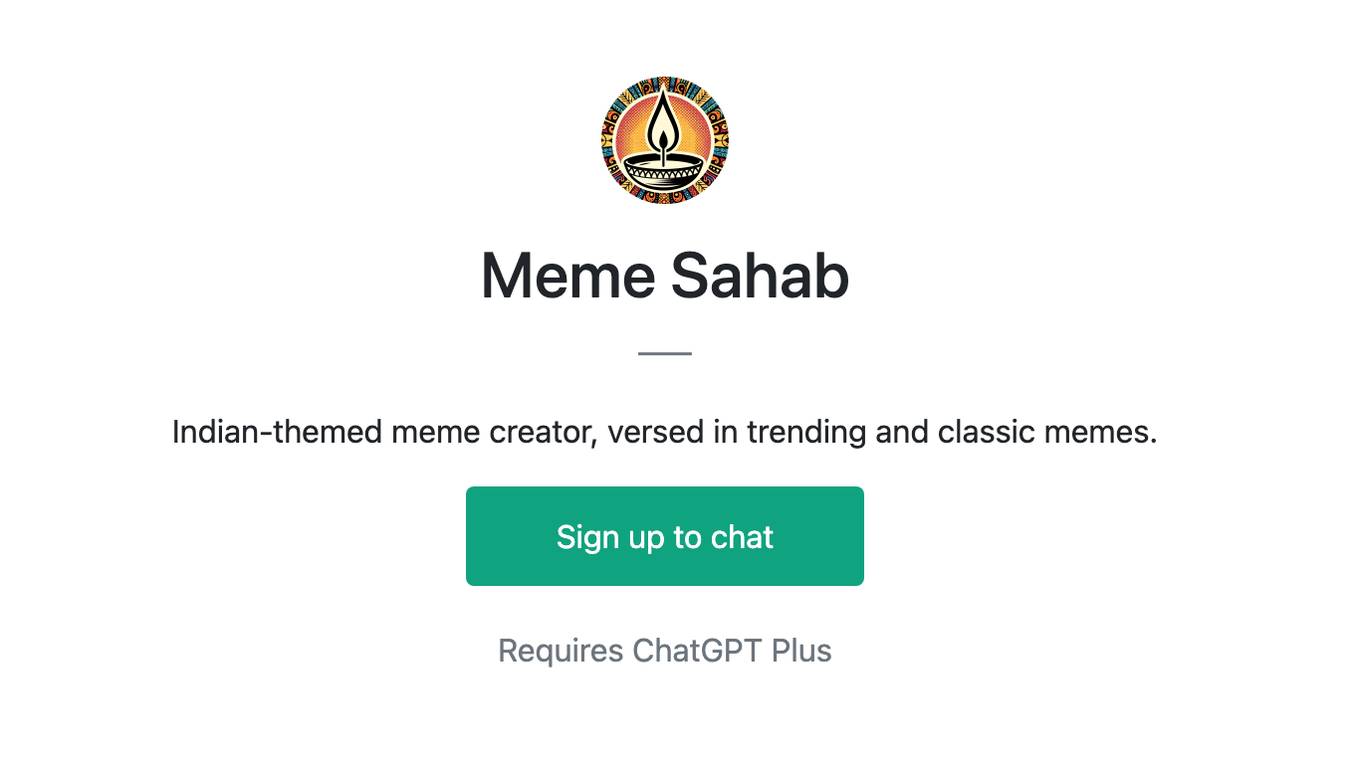
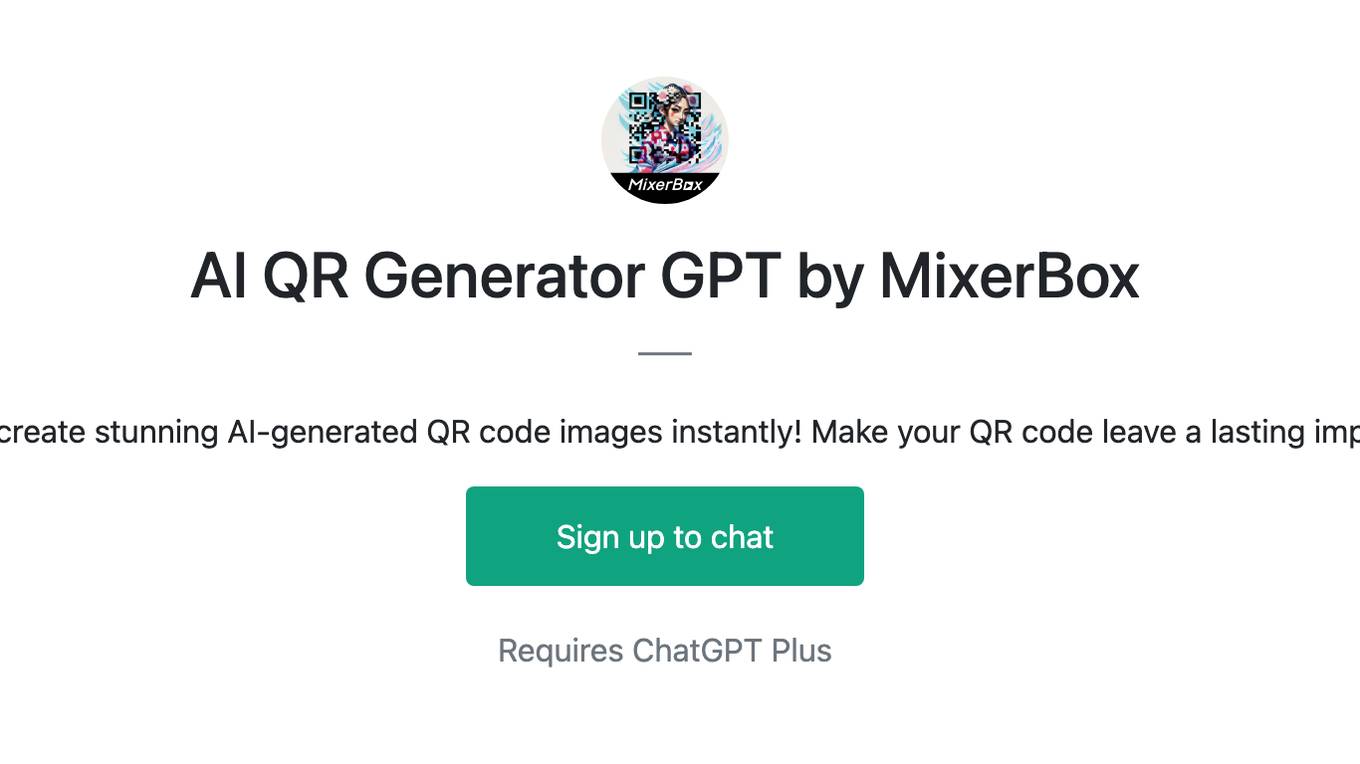

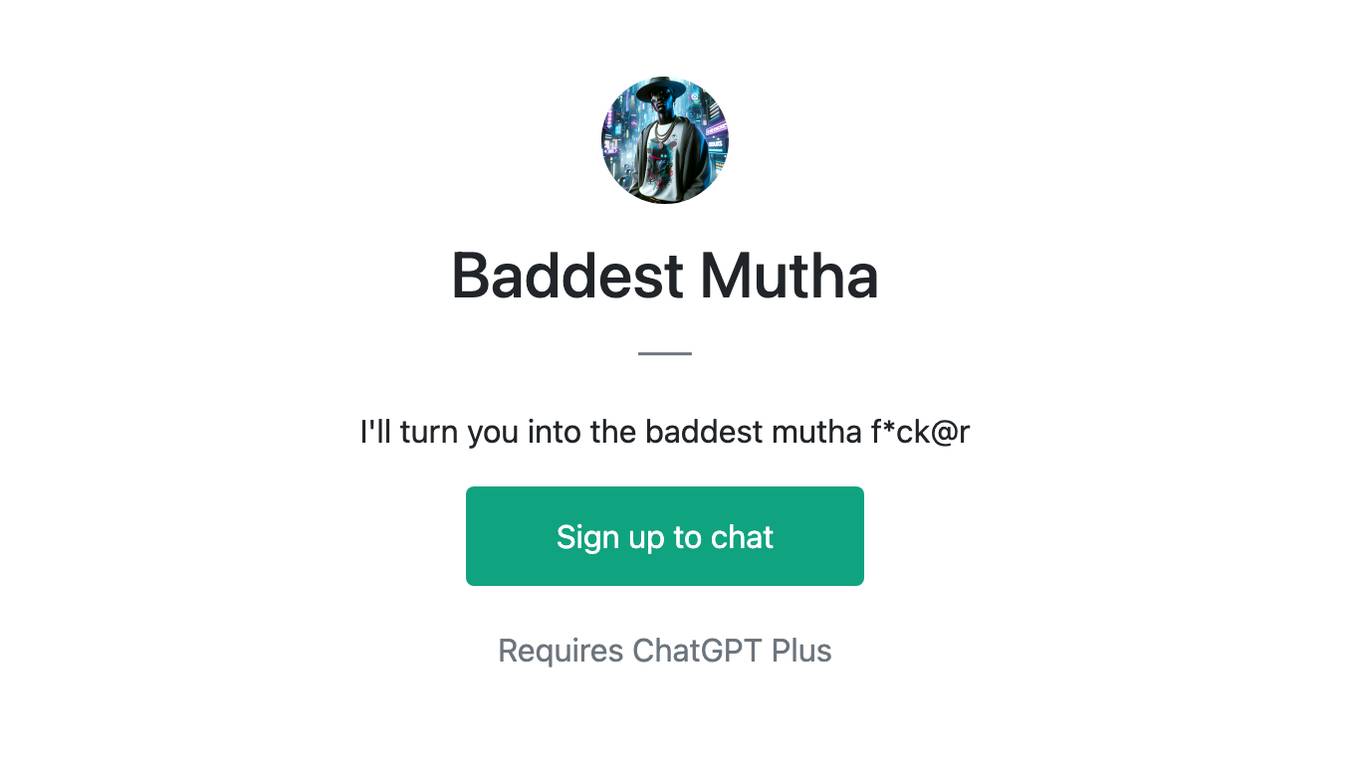
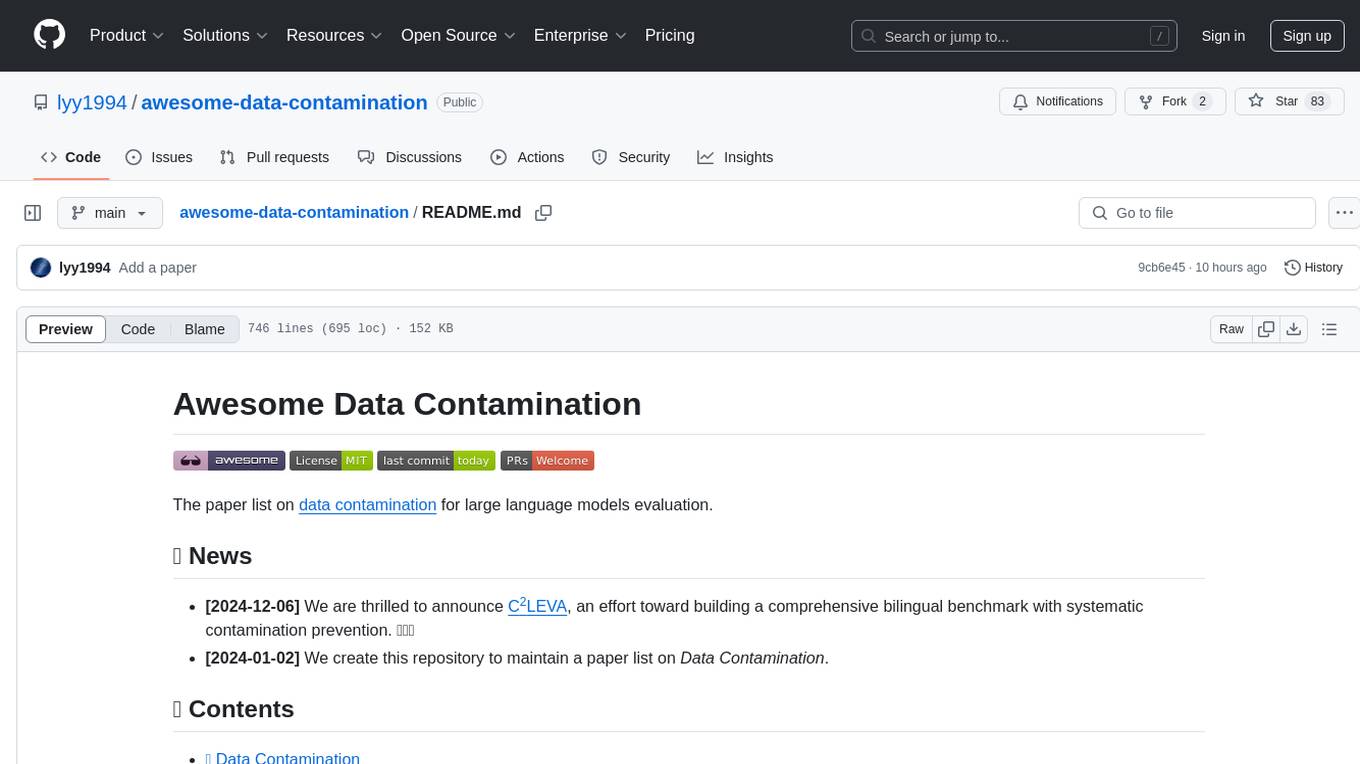
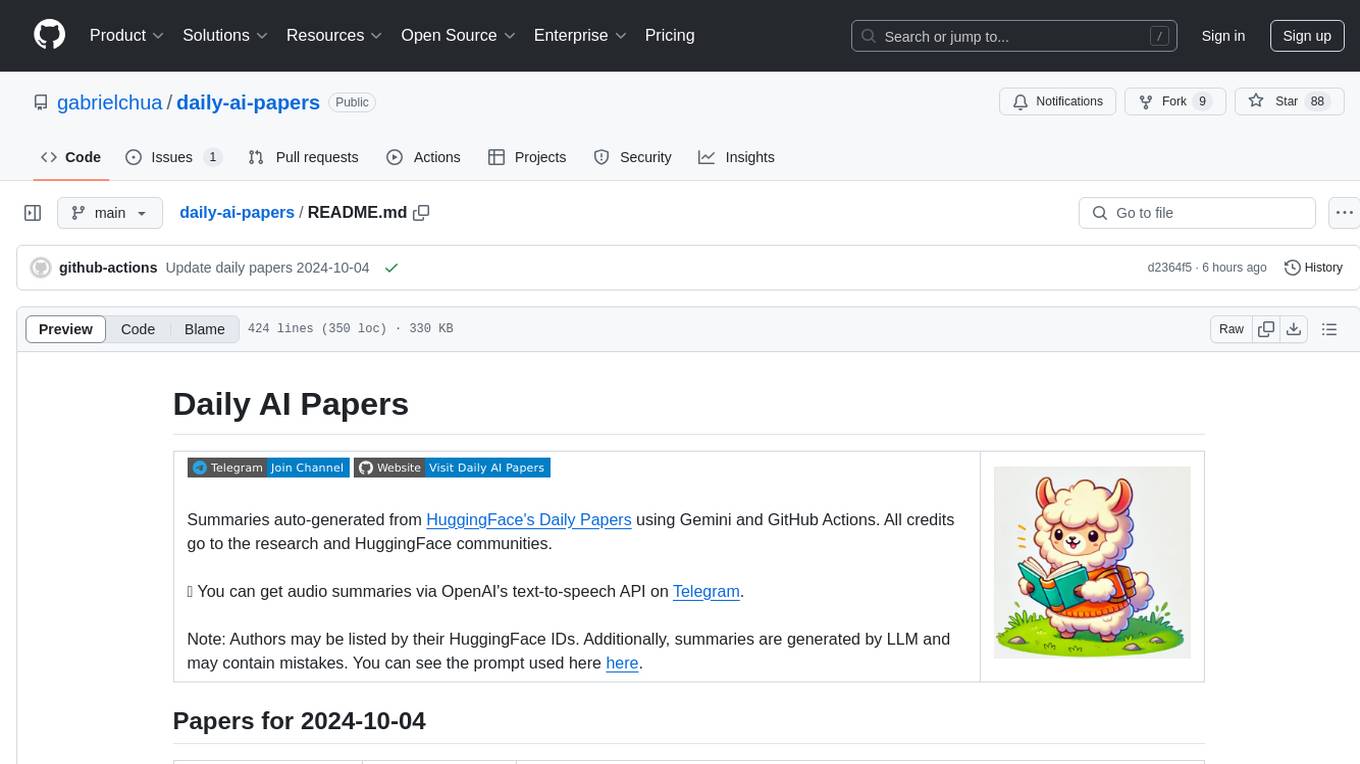
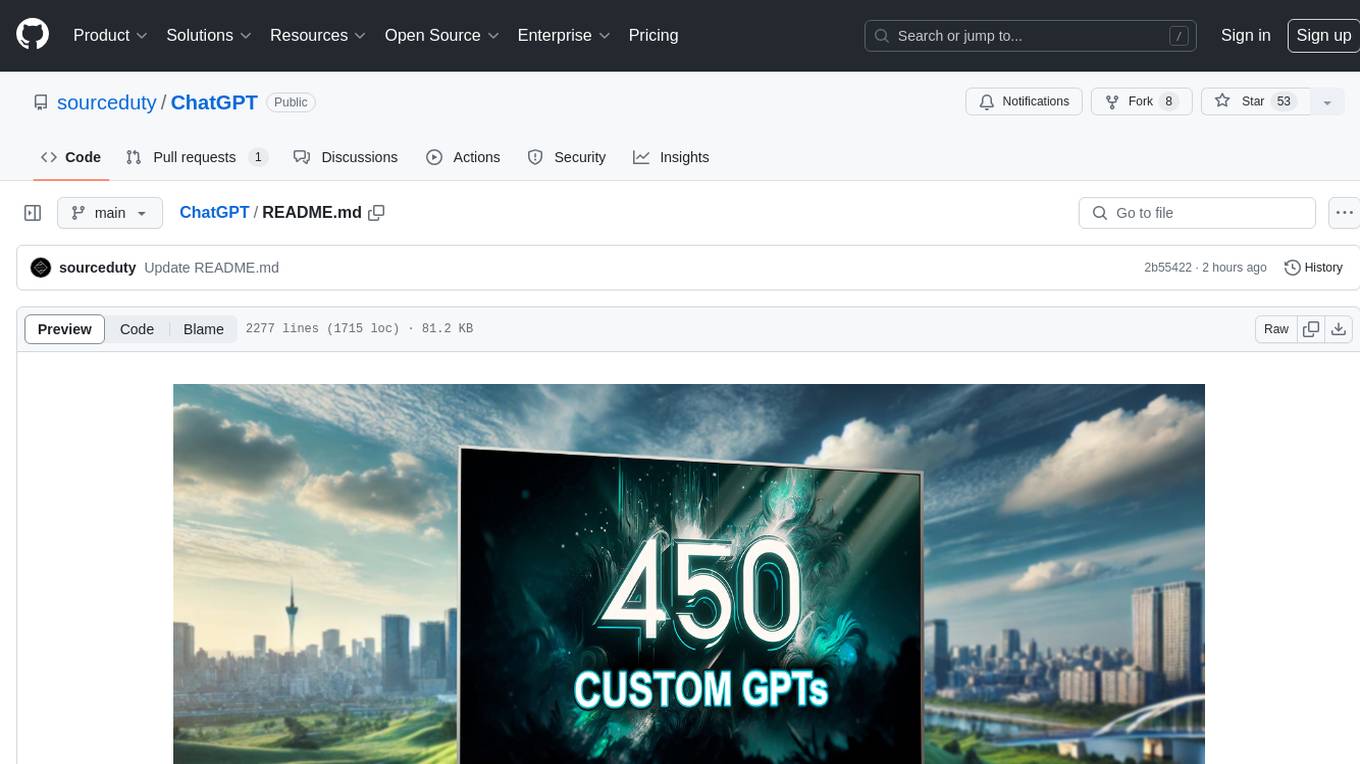

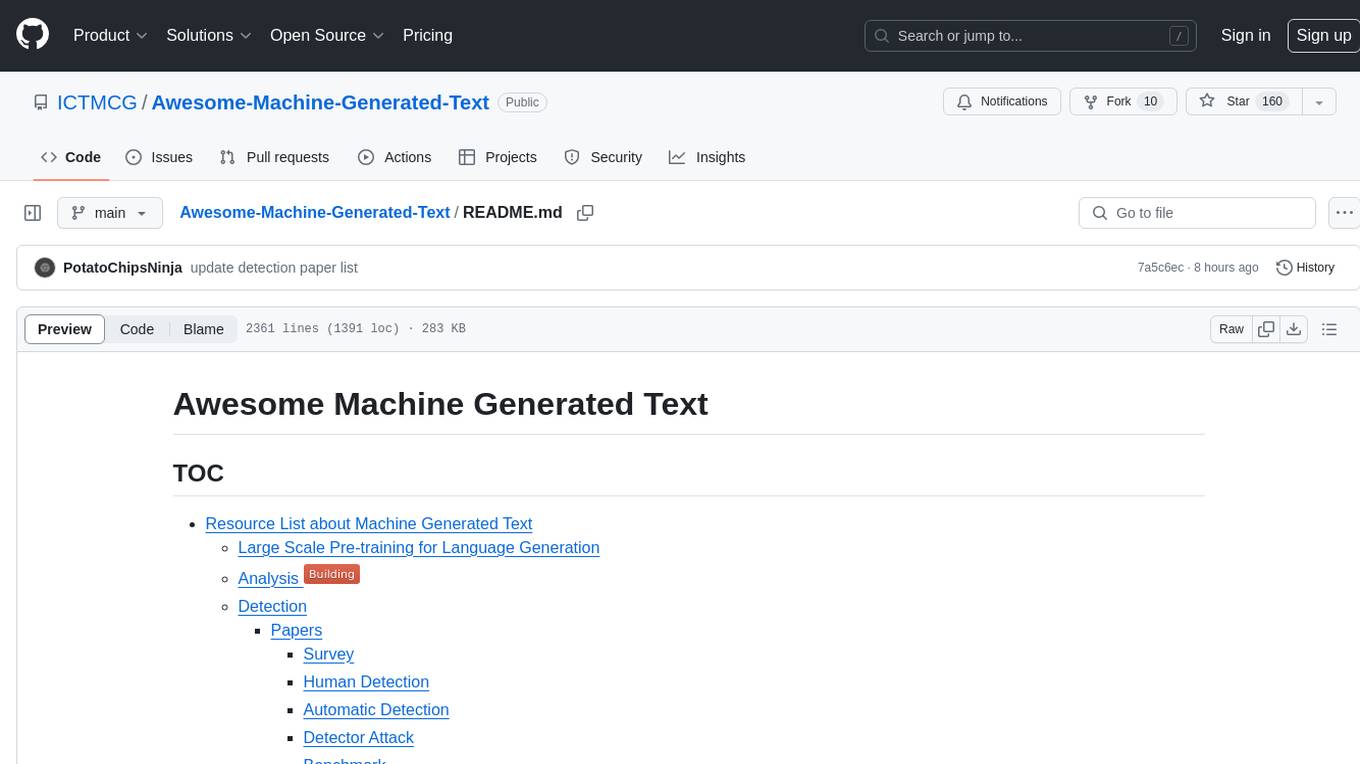
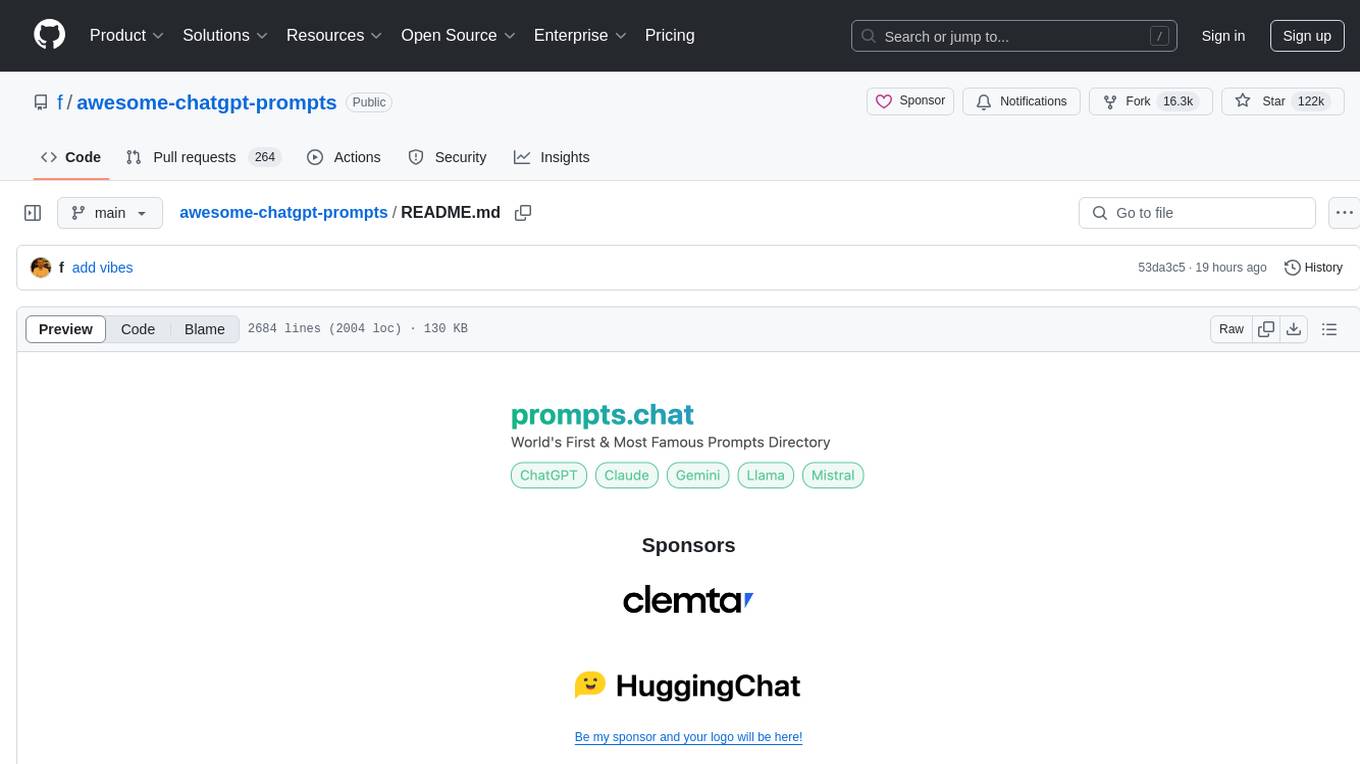
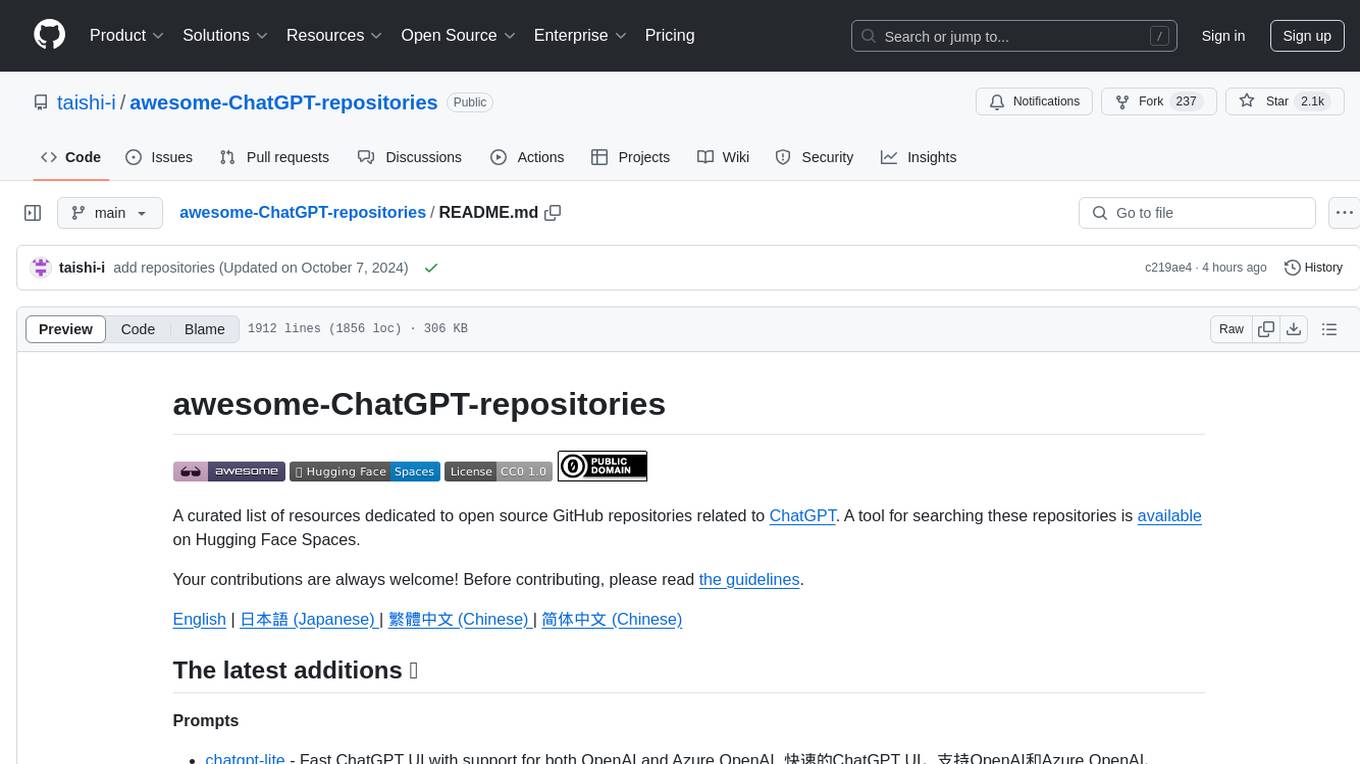
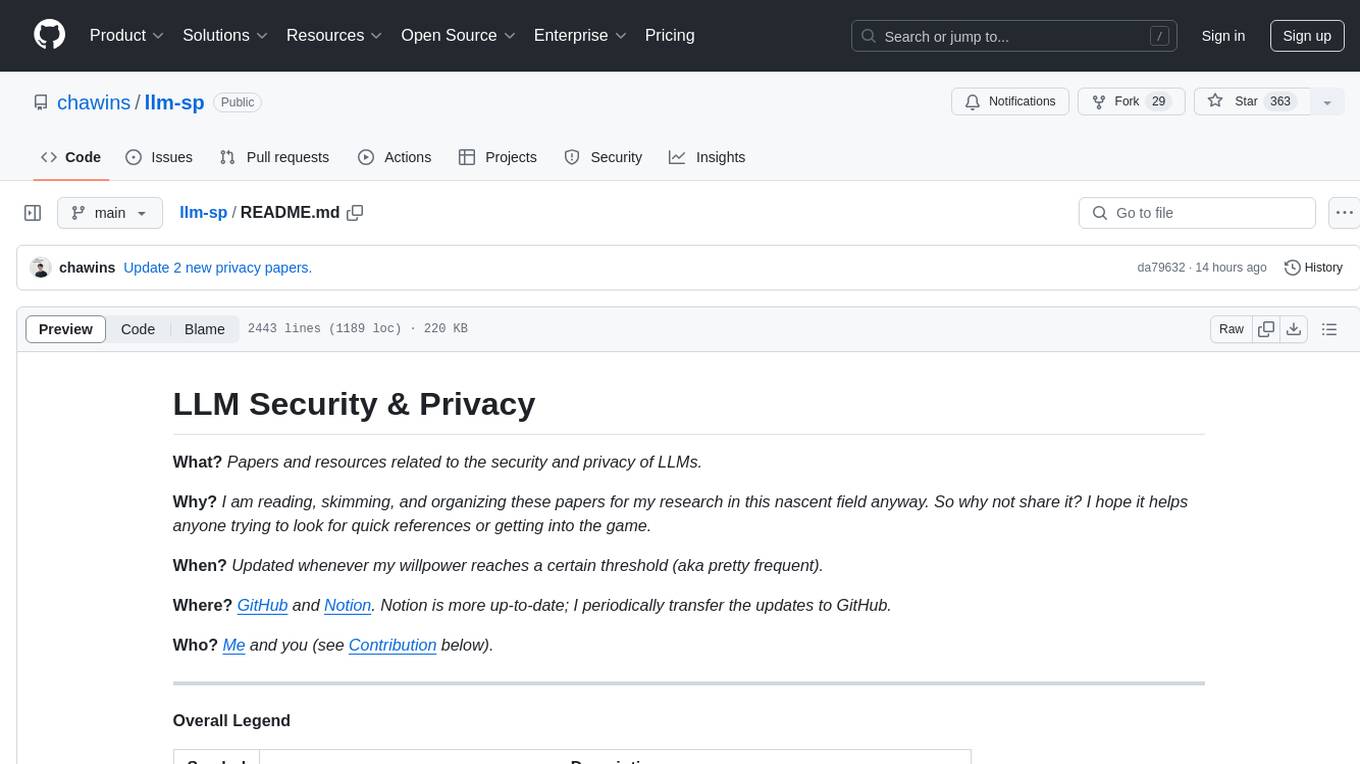
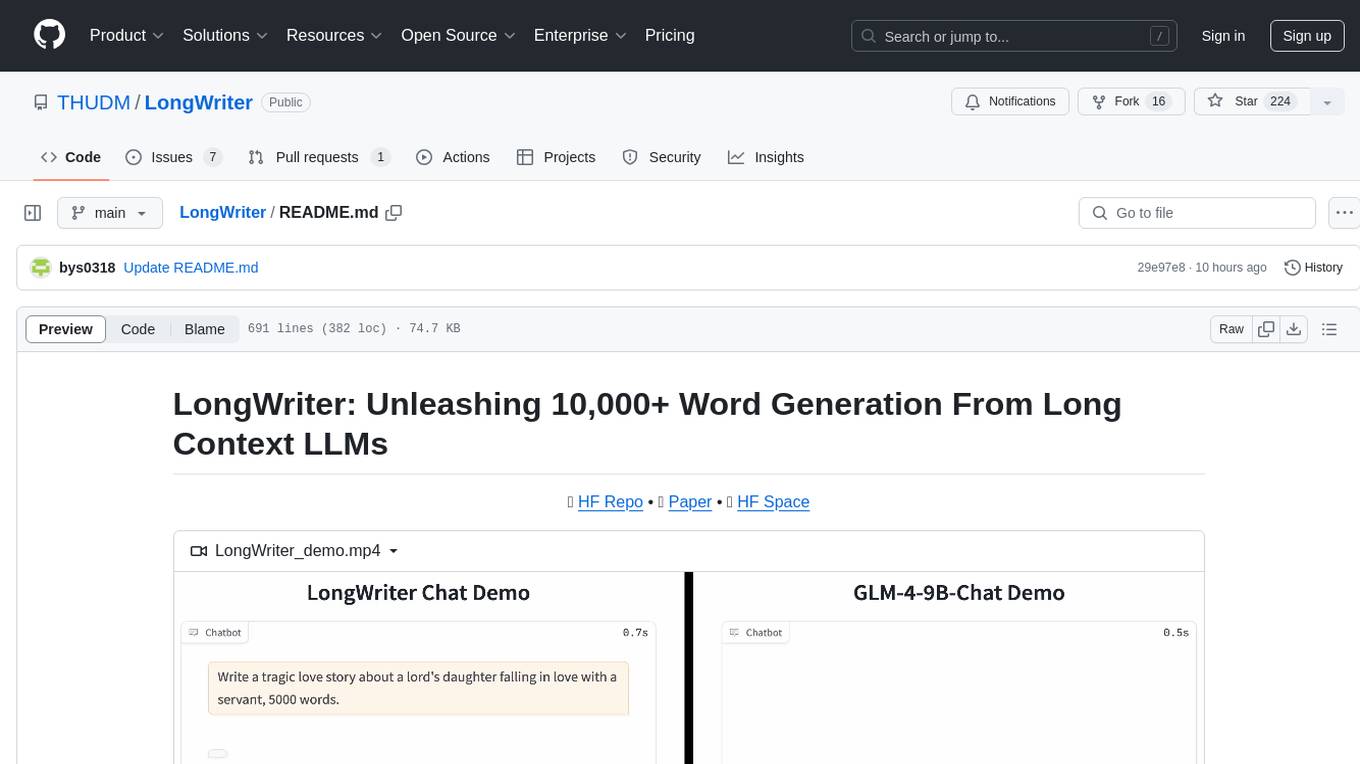
fish-ai
fish-ai is a tool that adds AI functionality to Fish shell. It can be integrated with various AI providers like OpenAI, Azure OpenAI, Google, Hugging Face, Mistral, or a self-hosted LLM. Users can transform comments into commands, autocomplete commands, and suggest fixes. The tool allows customization through configuration files and supports switching between contexts. Data privacy is maintained by redacting sensitive information before submission to the AI models. Development features include debug logging, testing, and creating releases.